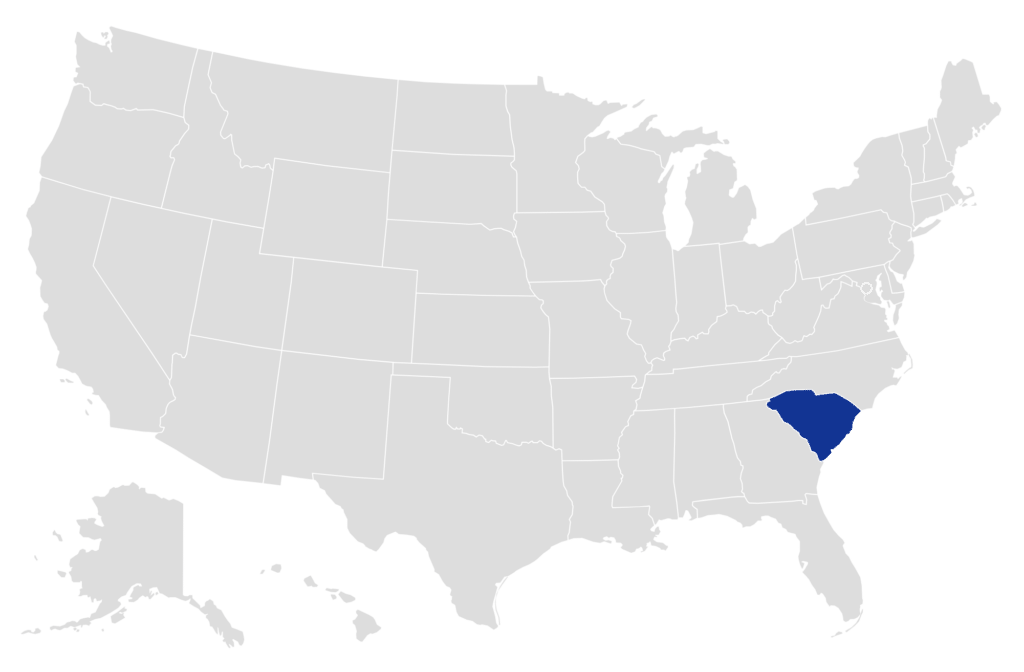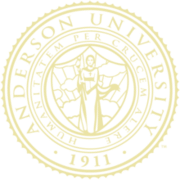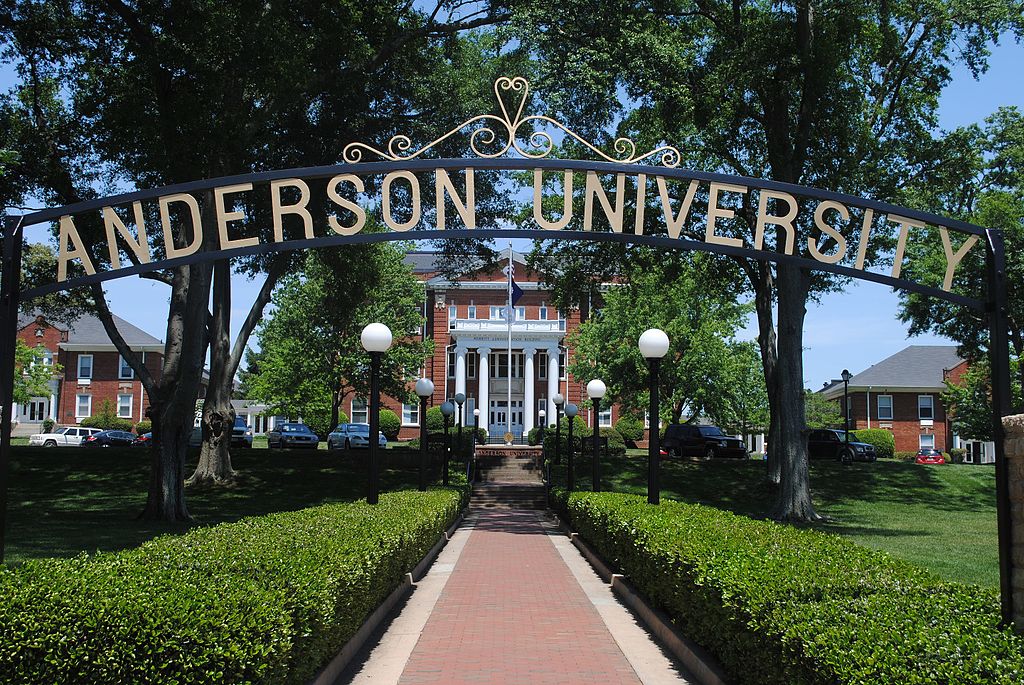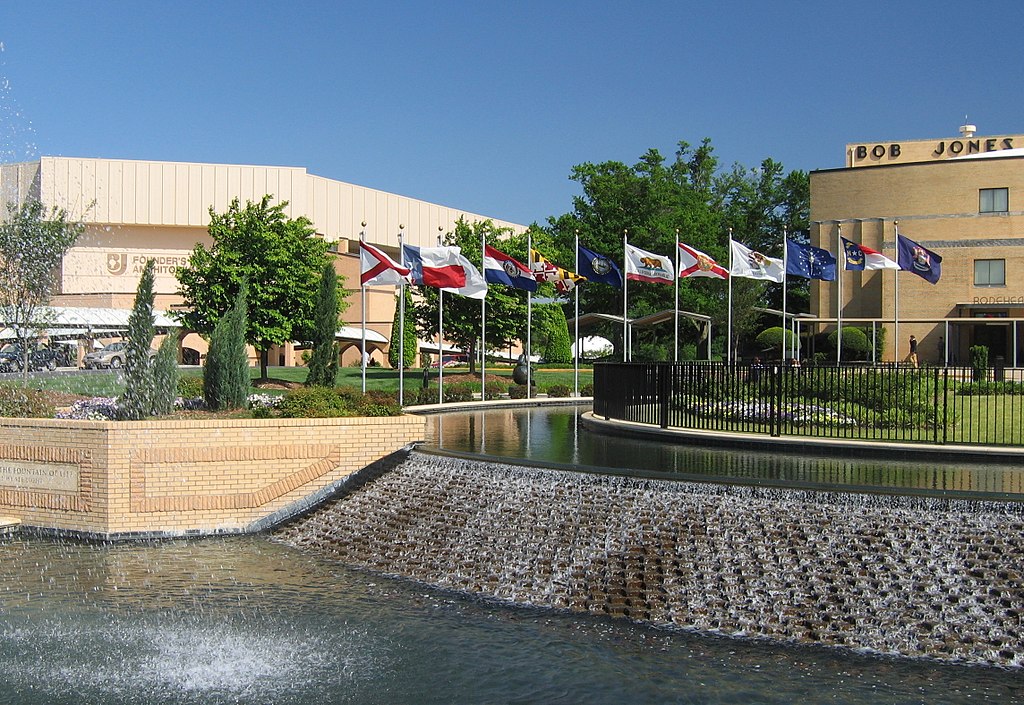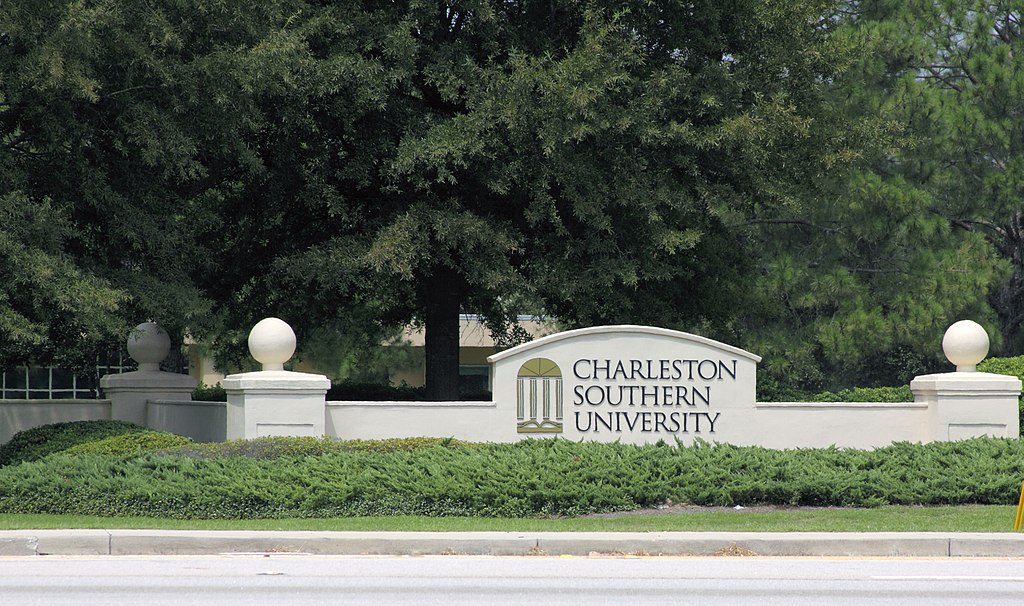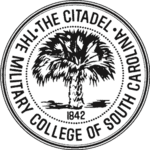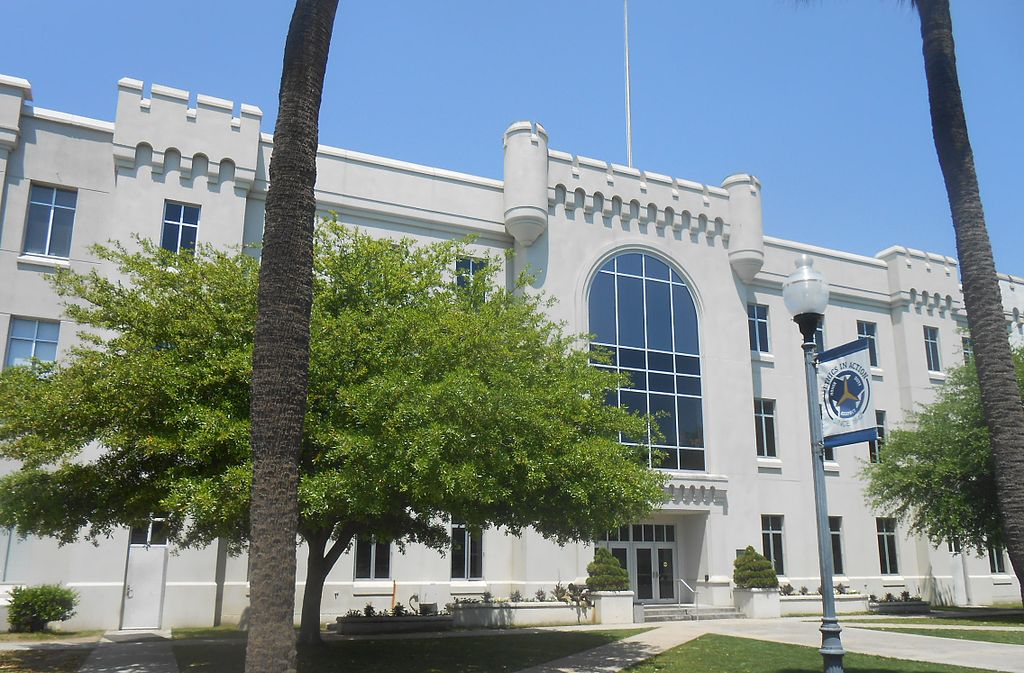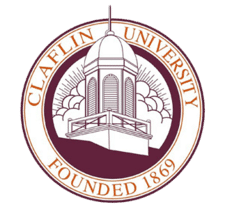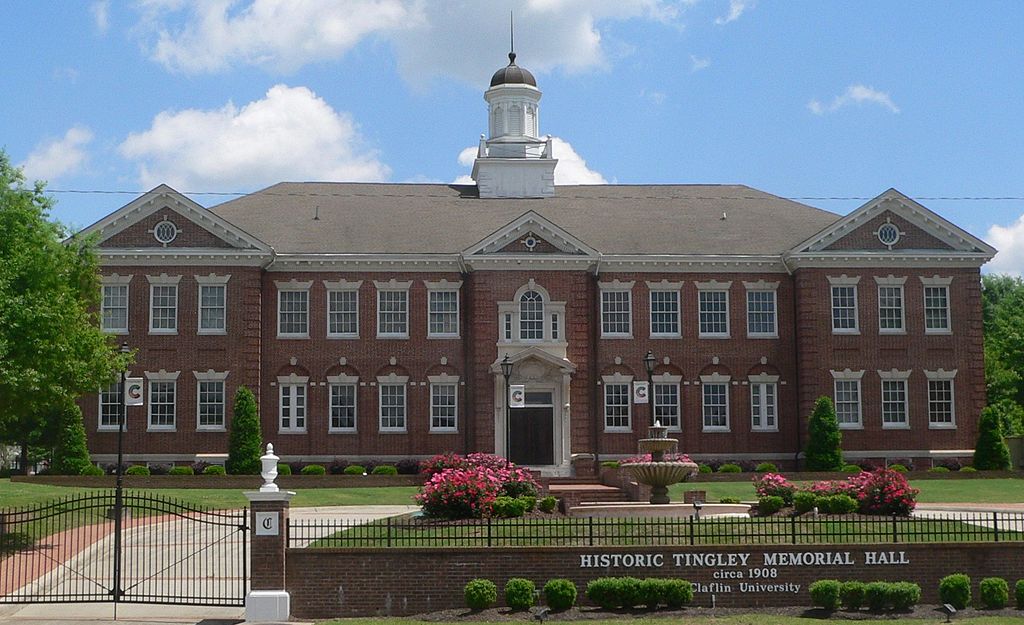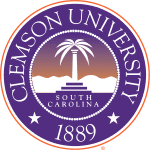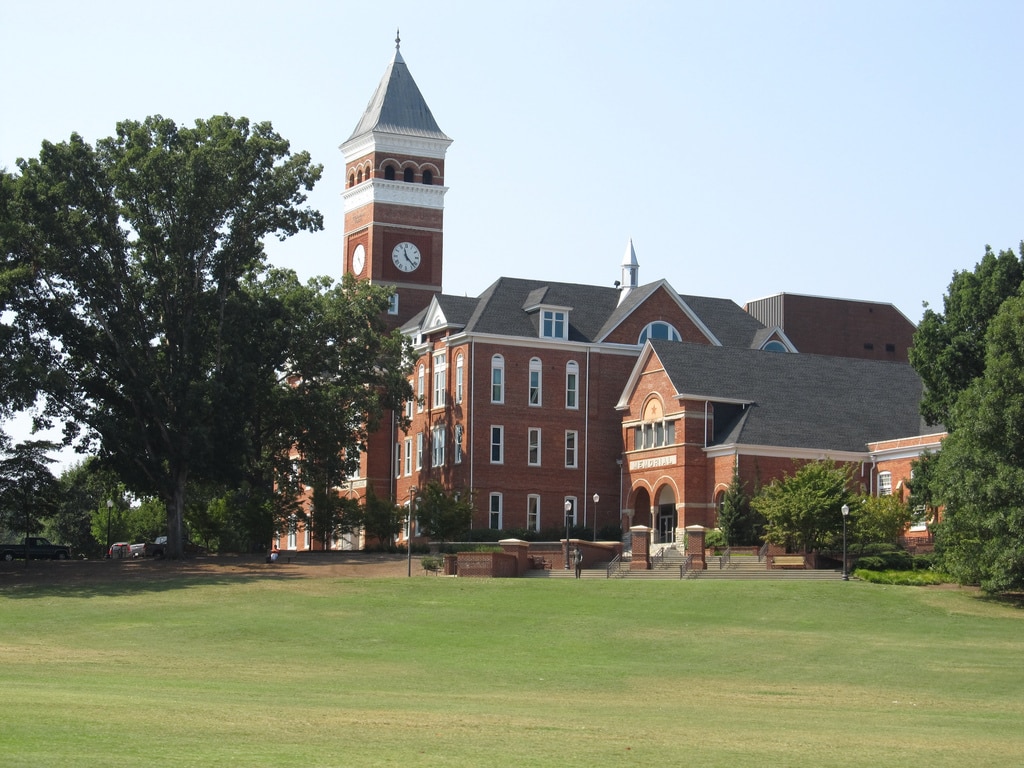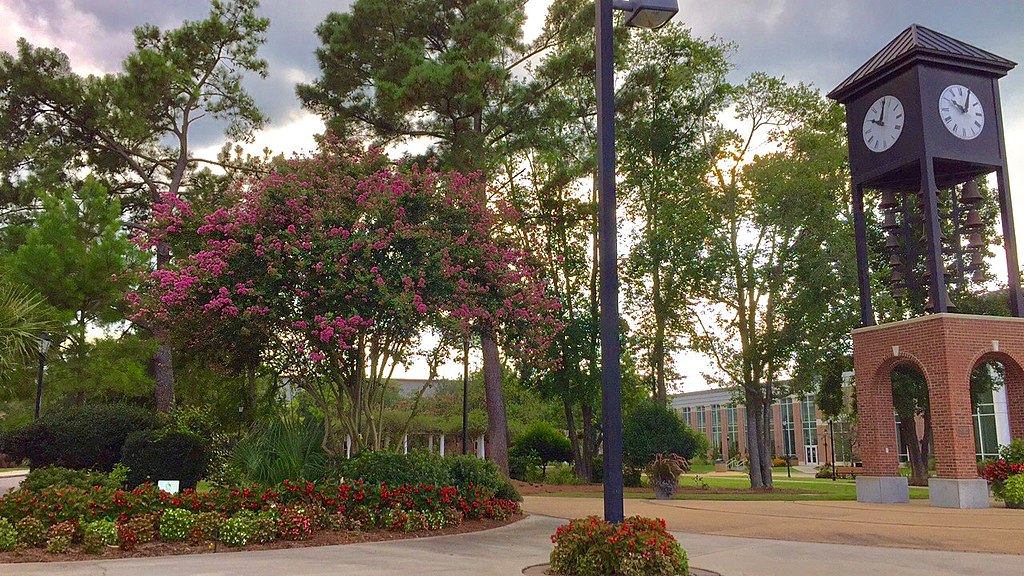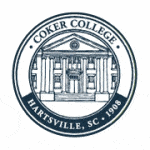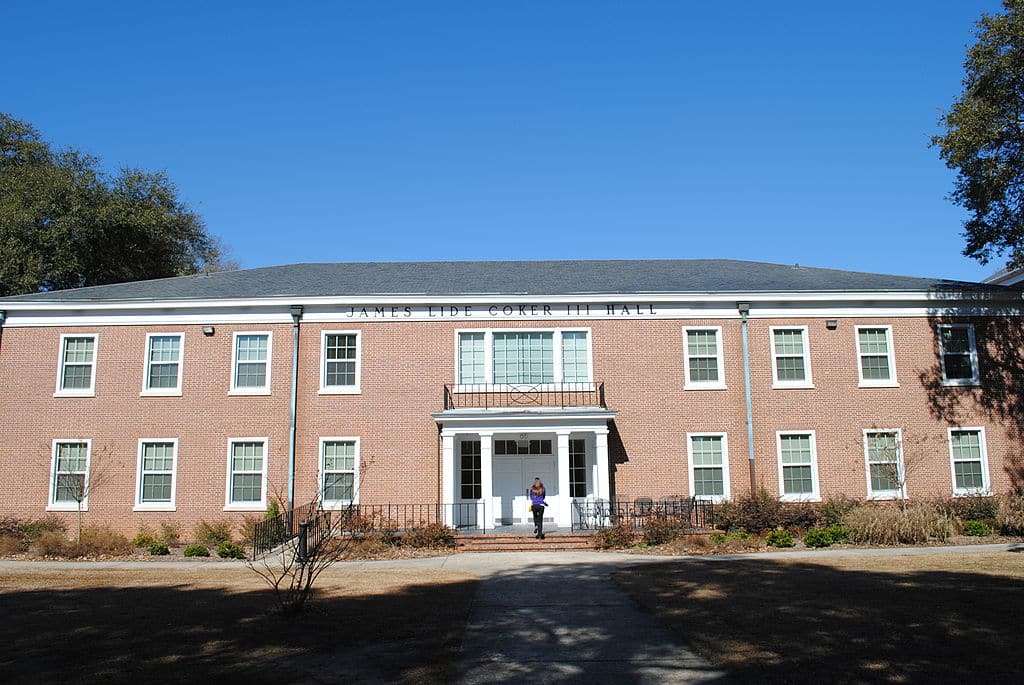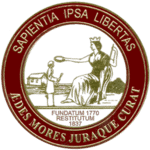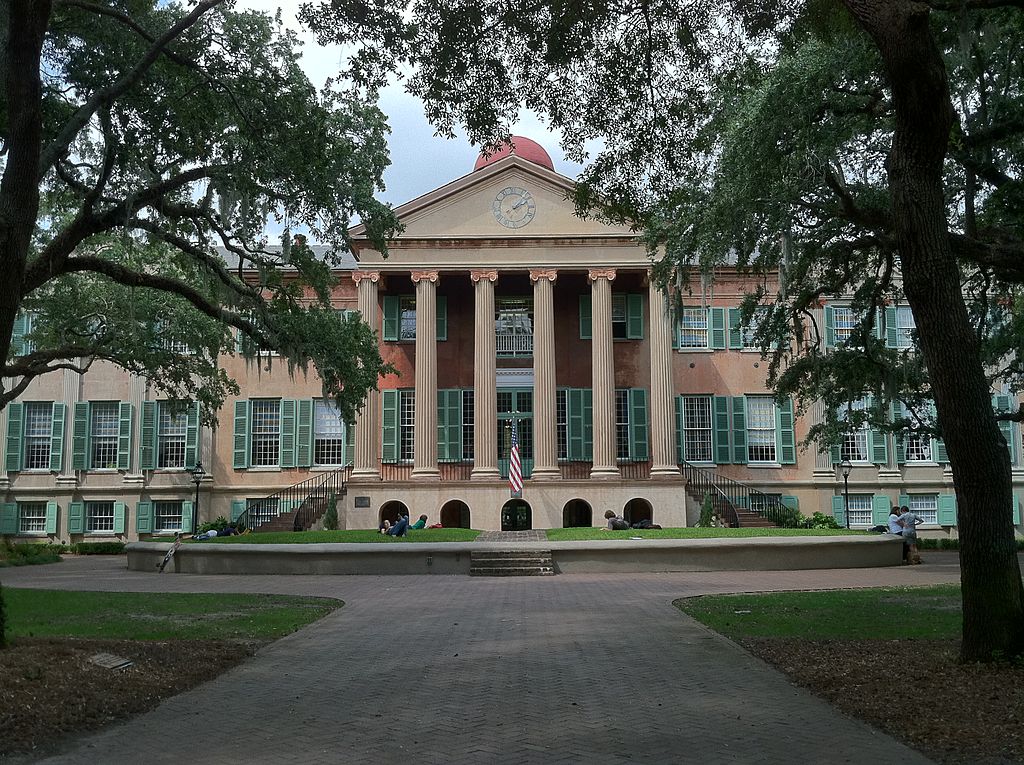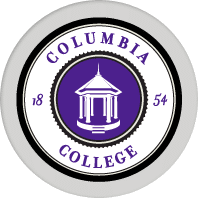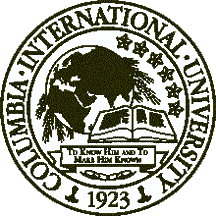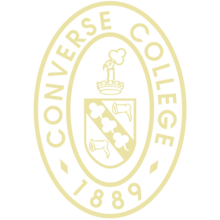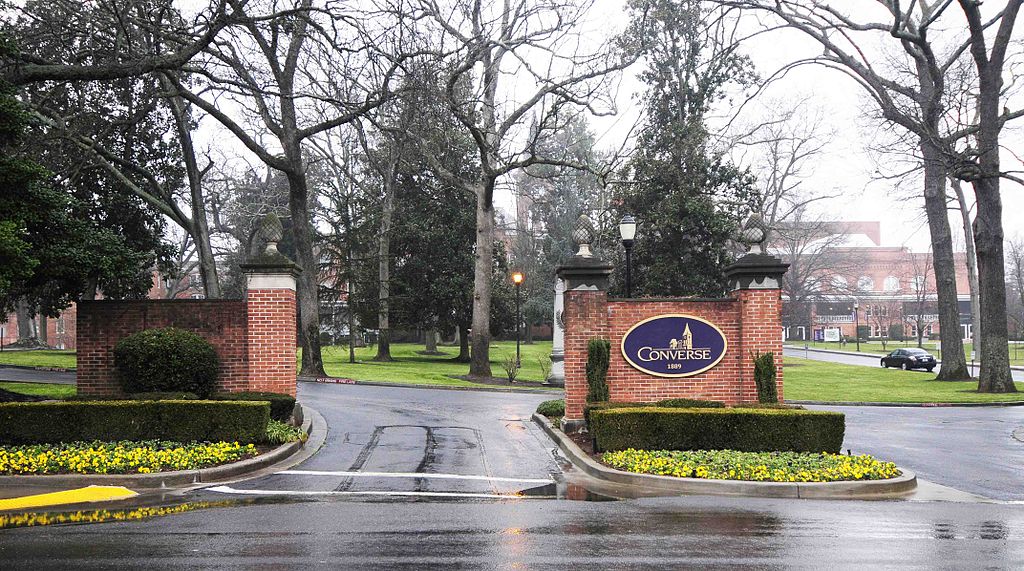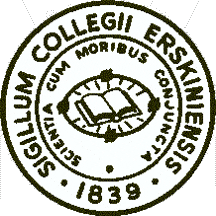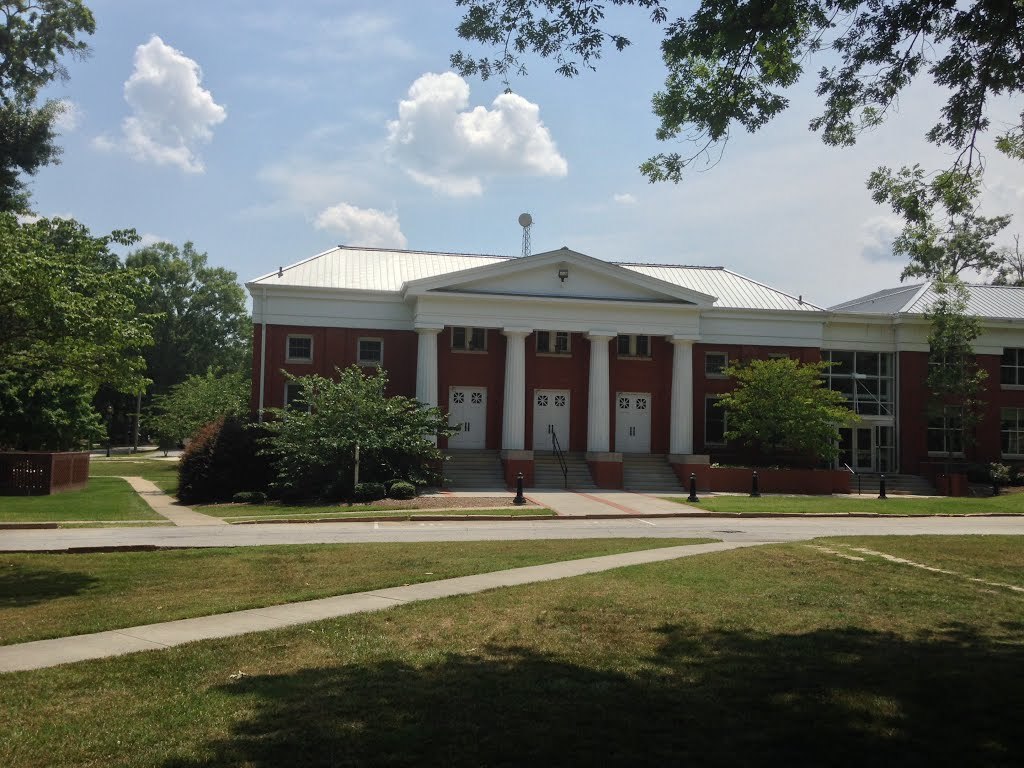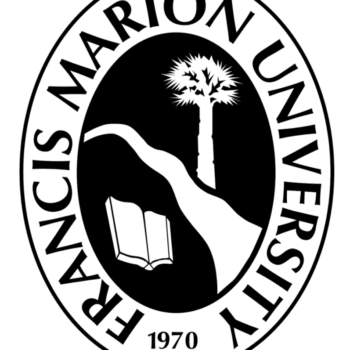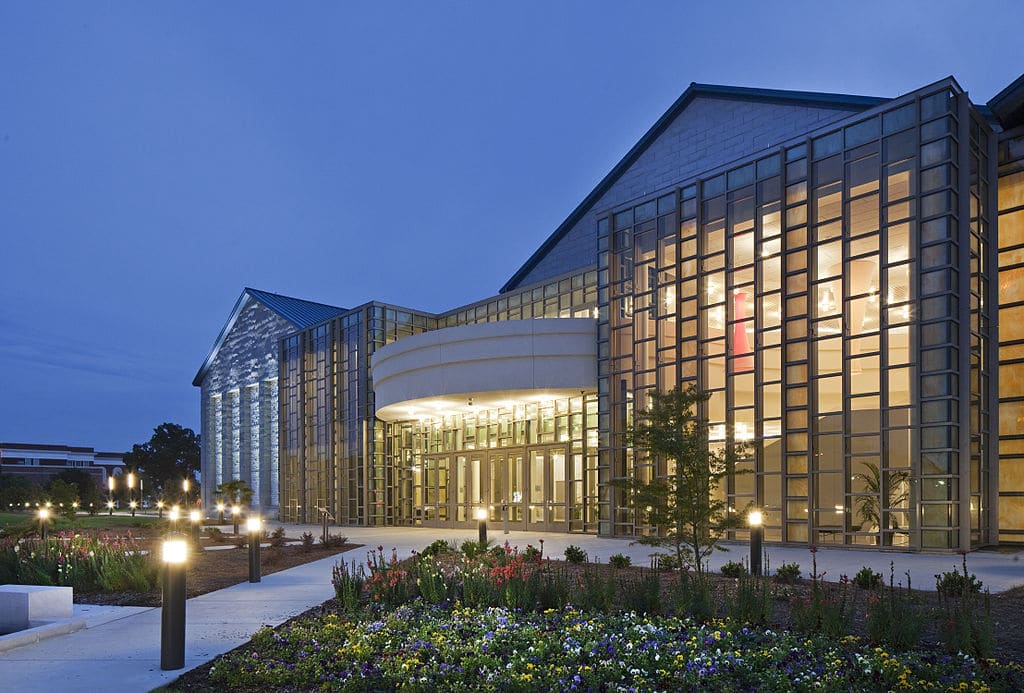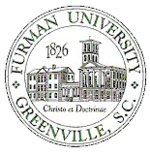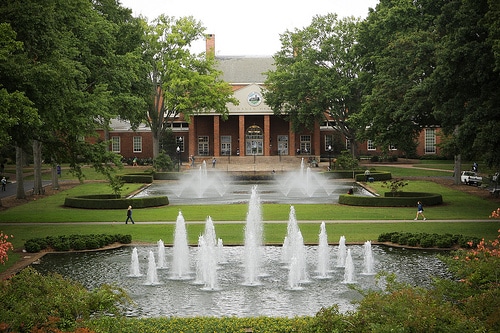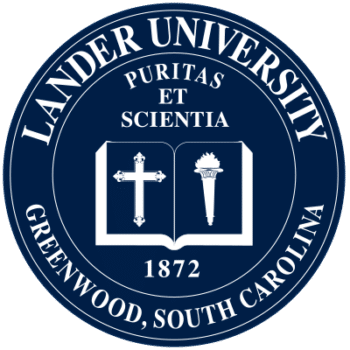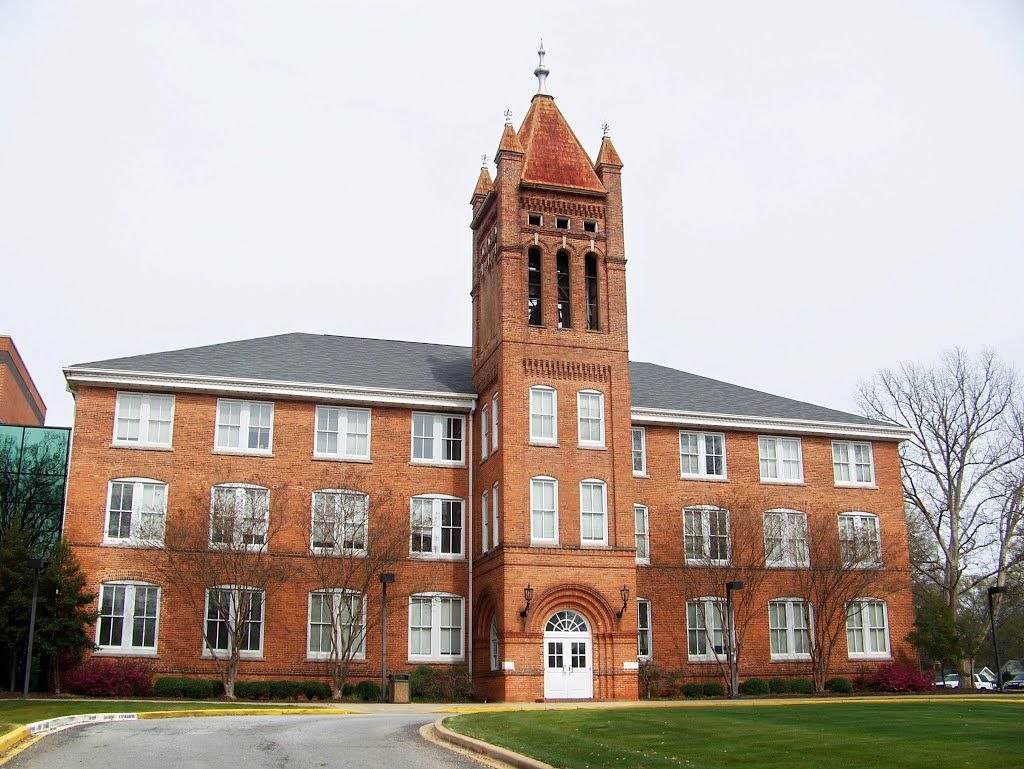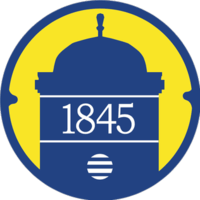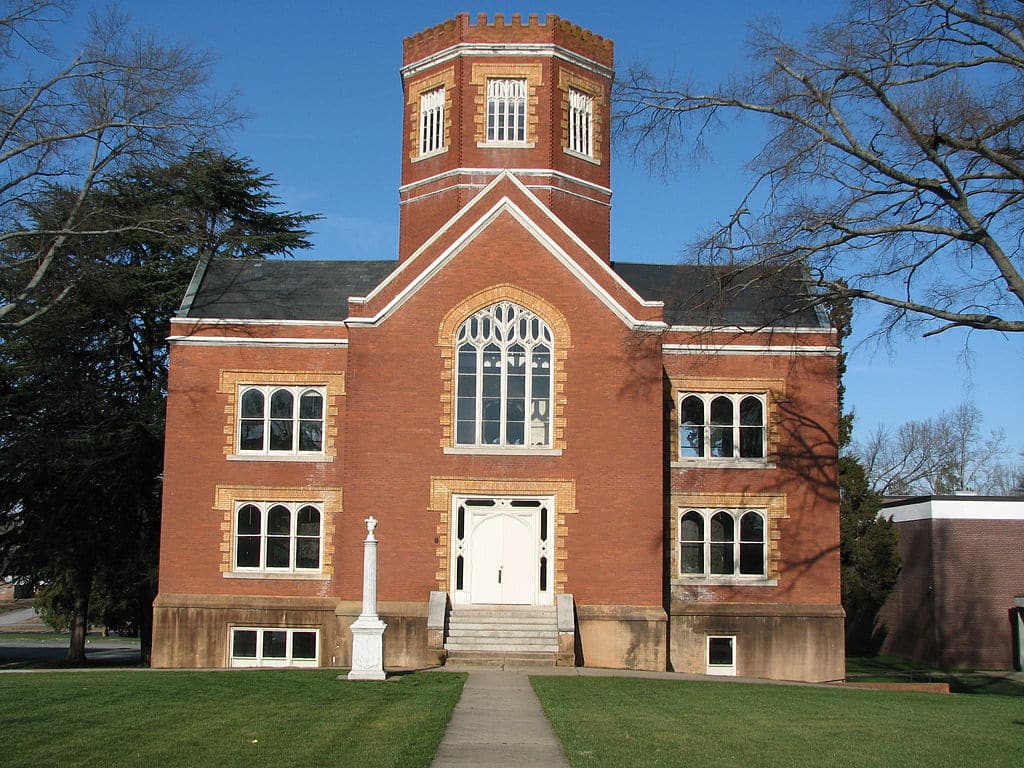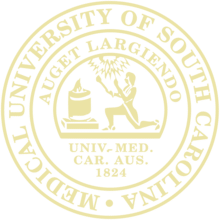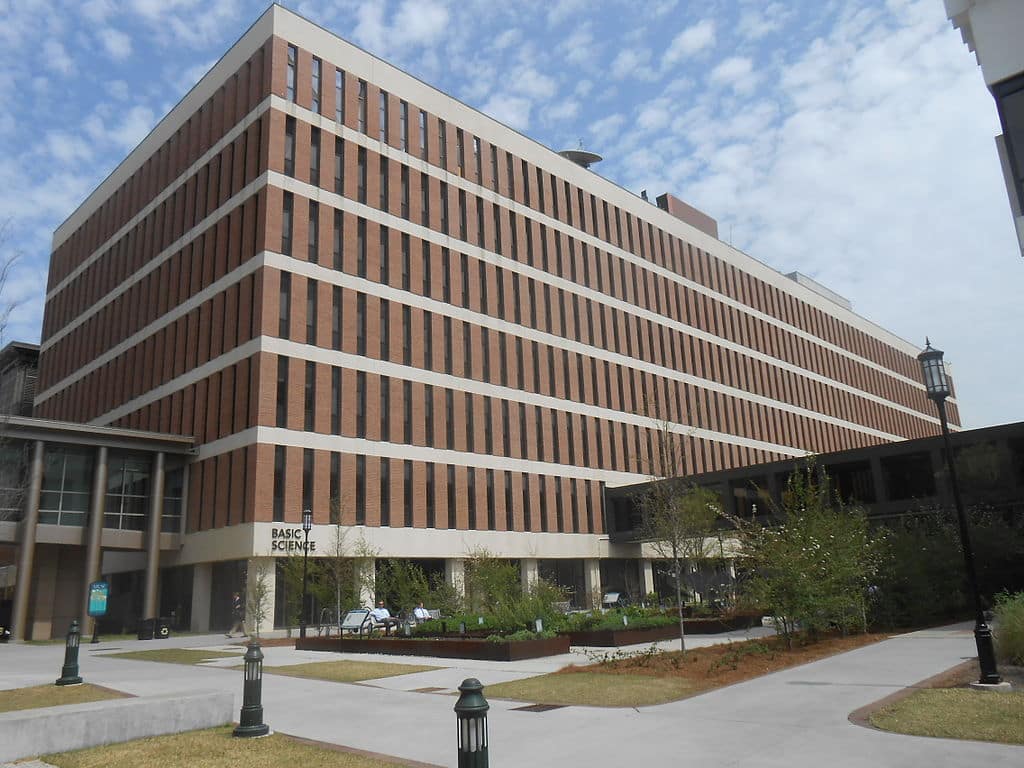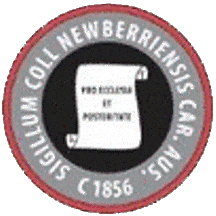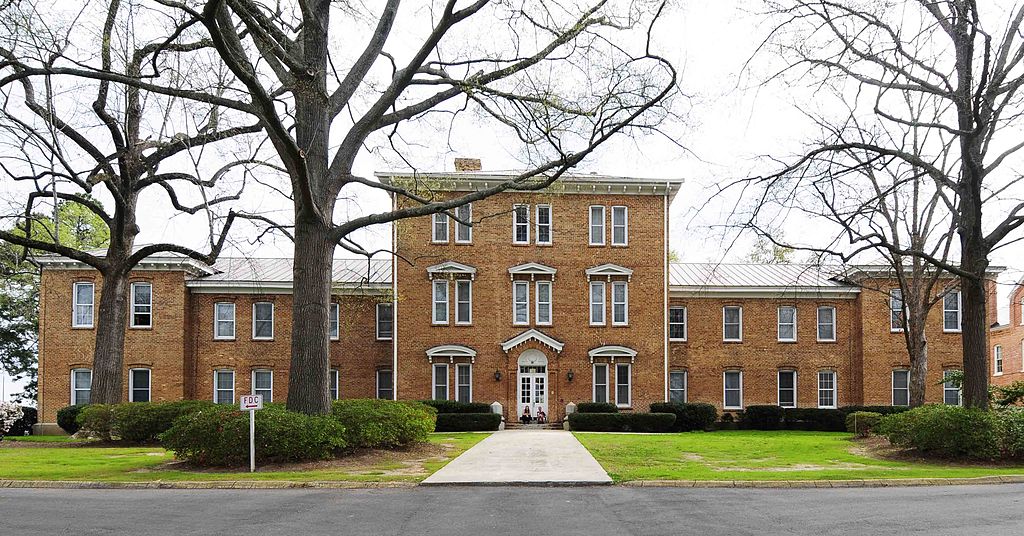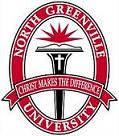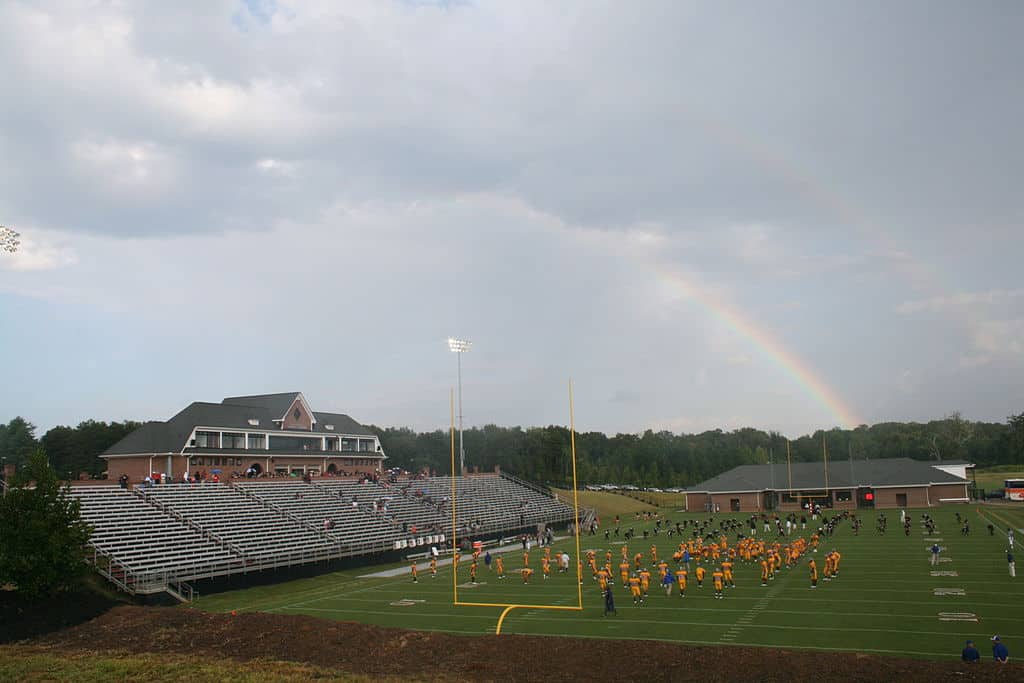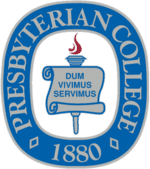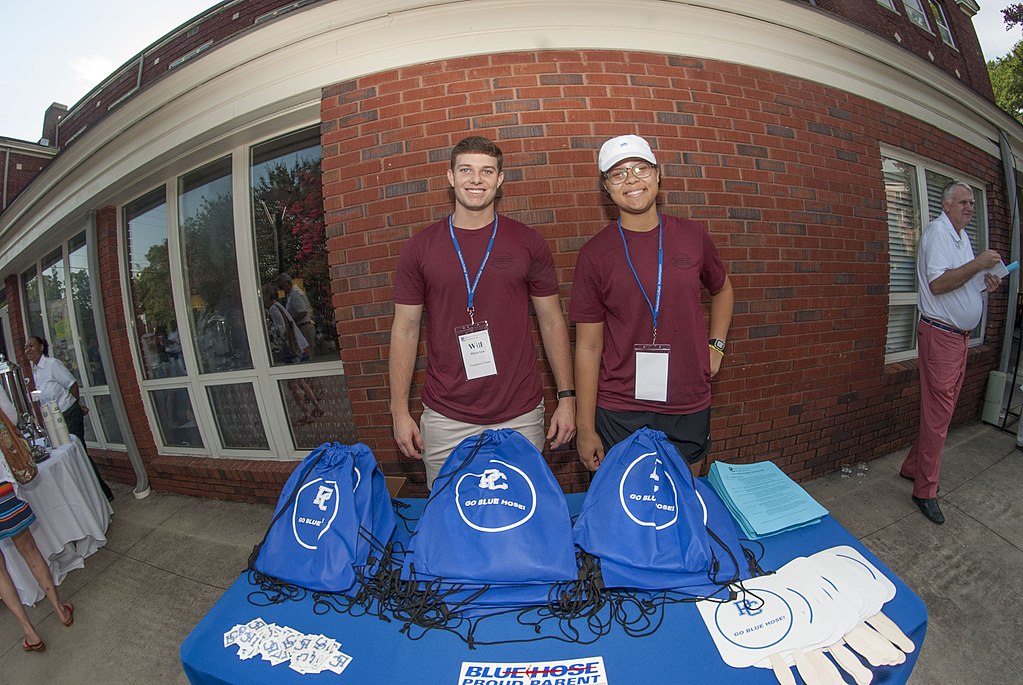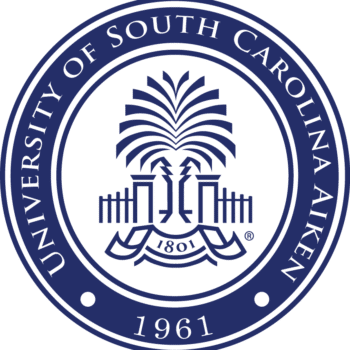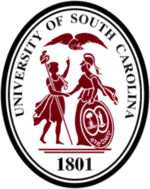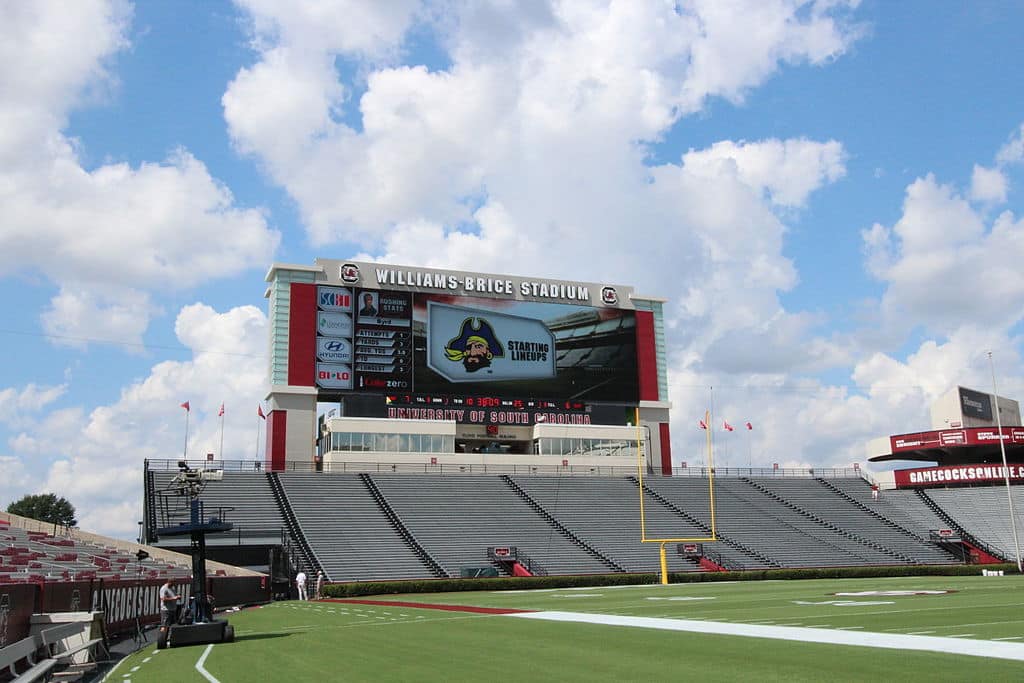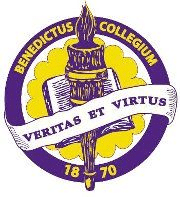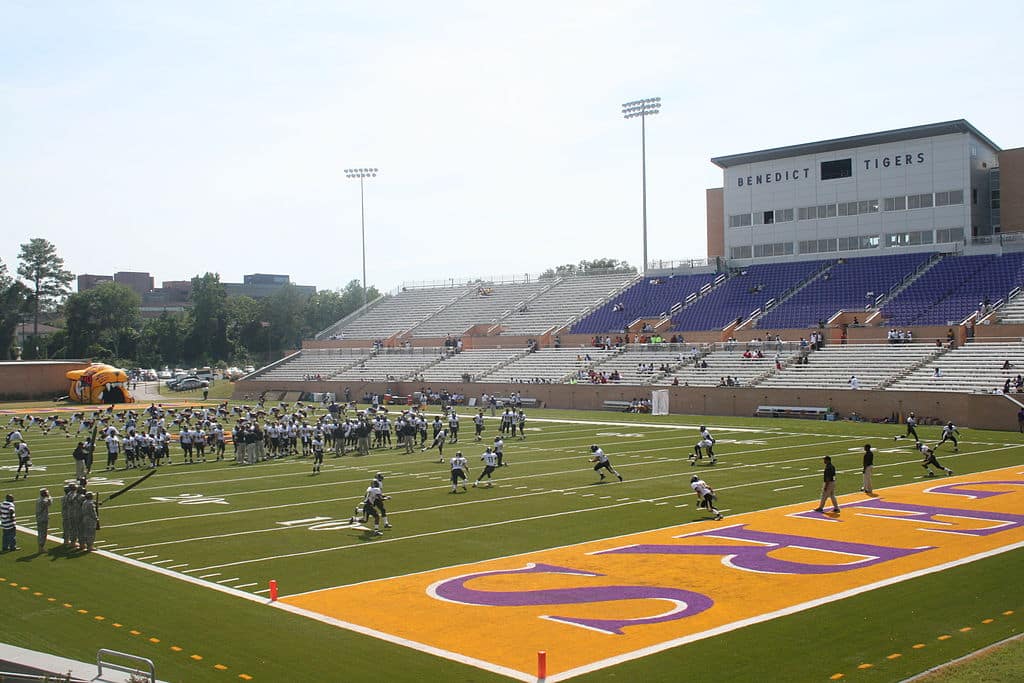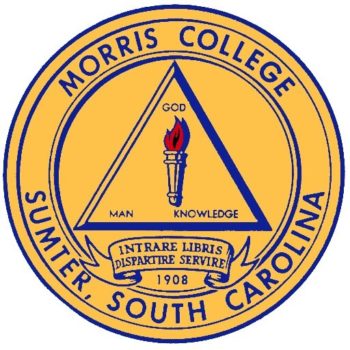Online Colleges in South Carolina
Compare all of the best distance education colleges located in South Carolina to pursue an online bachelors degree, associates, or online masters program degree. Including cost of tuition, degrees they offer, enrollment rates, faculty, famous alumni, and more.
Recommended Schools
-
Anderson University
Anderson, South Carolina
- 3,212 Total Students
- 55% Acceptance Rate
- 36% Enrollment Rate
- 16 to 1 Student to Faculty Ratio
- 3,322 Total Applicants
- Yes Online Programs
AU’s predecessor was founded in Anderson, South Carolina by three members of the community Daniel Brown, J.P. Reed, and Stephen McCulley. Johnson Female Seminary was founded and was named after the first president of Southern Baptist Convention, Rev. William Bullein Johnson. The institute struggled in its early years eventually closing down during Civil War and was eventually demolished. It opened its doors once again in 1911 as a college and thenceforth progressed as a university.
Today, Anderson University operates as a Private university based in Anderson, South Carolina. It has expanded its offerings to include arts and sciences along with many other modern disciplines; however remains affiliated with South Carolina Baptist Convention. This ensures that the university and its education are grounded in both professional and personal development.
Spiritual life at AU is further enhanced through the unique programs and ministerial opportunities present at the campus. There are various ministries at the campus, one of which is Fellowship of Christian Athletes (FCA) where the athletes take part is extending Christian values. There are special ministries for women as well that arrange and support for worship and missions. Besides religious programs, there are many community and student involvement activities as well. One interesting event at the university is its ‘Spring Base Camp’. A fun event aimed at socializing is not about camping as the name suggest rather is an introductory program for the students and their families to acquaint with the institute.
The programs offered at AU also cover a wide span of disciplines. AU grants Bachelor’s, Master’s and Doctoral degrees and there are 40 majors and 32 minors, along with 38 concentrations in arts, sciences, public service, education and others. Made in the Georgian style architecture, the notable buildings on the campus are Johnny Mann Center, the newly constructed G. Ross Anderson, Jr. Student Center and the dedicated H.H. Watkins Teaching Center.
AU School Facts
- LocationSouth Carolina
- Religious AffiliationBaptist
Famous AU Alumni
-
James Lee Barrett
Entertainment & Arts
Writer, has won Tony Award
-
Timothy M. Cain
Politics & Law
Serves as District Judge on the United States District Court for the District of South Carolina
-
Erskine Thomason
Professional Sports
Former player at Major League Baseball for the Philadelphia Phillies
-
Sue Monk Kidd
Entertainment & Arts
A wirter; New York Times Bestselling author of The Secret Life of Bees, The Mermaid Chair and The Invention of Wings
-
Leigh Cappillino
Entertainment & Arts
A singer, sings in the contemporary Christian music group Point of Grace
-
Thomas C. Alexander
Politics & Law
A member of the South Carolina Senate, Chairman of the Senate General Committee
-
Bob Jones University
Greenville, South Carolina
- 3,005 Total Students
- 82% Acceptance Rate
- 67% Enrollment Rate
- 12 to 1 Student to Faculty Ratio
- 1,101 Total Applicants
- Yes Online Programs
A Private non denominational, BJU was established by Bob Jones Sr., an evangelist in 1927. It was during many of his travels that he realized that the many of the students, especially those in their college years lacked in Christian faith and values. It was this that made Dr. Bob Jones Sr realize that a college that provided modern education and yet was firm in Christian tradition was needed to produce a better class of leaders and citizens.
Presently, the university has come to be situated in Greenville, South Carolina and hails itself as a Protestant university with its life and academic strictly regulated in the Christian tradition. Although the university reinforces a biblical worldview, it also encourages each of its students to express creatively and think critically.
Bob Jones University brings both religious and social life to campus. Maintaining faith and worship is central to the institute. It offers Chapel services which are held thoroughly in the week bringing guest speakers as well as university leadership. There are worshiping events where students volunteer with their skills, musical, management or any other to be a part of it. Students can also take part in conferences as well as local churches. Fun becomes part of student life through its men and women societies which put up events and activities. The university also has its set of unique traditions such as Gold Rush Daze which takes place once in four years which includes fireworks, rallies and celebrations; there is Christmas Lighting where the campus is lighted up on Christmas Eve and Living Gallery where the life and death of Christ are brought to life. There are athletic competitions where its teams ‘Bruins’ participate at the NCCAA Division II. Campus colors are Blue and White.
Academic programs at BJU are offered through four colleges, a college and a seminary. It offers more than 60 undergraduate majors and more than 10 associate programs. There are 16 graduate program offerings. Its prominent facilities are Mack Library, named after John Sephus Mack, Howell Memorial Science Building and few others.
BJU School Facts
- Years Estd.1927
- NicknameThe Bruins
- MascotBrody the Bruin
- MottoPetimus Credimus (Latin)
- Motto Eng.We seek, we trust
- ColorsBlue and white
- LocationSouth Carolina
- AthleticsNCCAA Division II South
- Religious AffiliationNot applicable
Famous BJU Alumni
-
Billy Kim
Social Advocacy & Service
Formery held position as the President of Baptist World Alliance
-
Asa Hutchinson
Politics & Law
Presently serving as the governor of Arkansas; also served in the U.S. Congress
-
Bryan Simonaire
Politics & Law
Maryland state senator
-
Les Ollila
Education & Advocacy
Formerly served as the president of Northland Baptist Bible College
-
Ron "Patch" Hamilton
Entertainment & Arts
Composer and also the President of Majesty Music
-
Terry Haskins
Politics & Law
Former Speaker Pro Tempore of the South Carolina House of Representatives
-
Charleston Southern University
Charleston, South Carolina
- 3,621 Total Students
- 60% Acceptance Rate
- 28% Enrollment Rate
- 15 to 1 Student to Faculty Ratio
- 4,390 Total Applicants
- Yes Online Programs
CSU is a private independent university that began as a college, founded in 1964 and was called Baptist College at Charleston. Before the establishment of this institute, by 1954 organized efforts for establishing an institution had already started and within a year had also been discussed by South Carolina Baptists at the General Board meeting. The funds were raised and the institute was established. The classes were welcomed to the institute after a year, in 1965.
Charleston Southern University is located in North Charleston in South Carolina and is affiliated with the South Carolina Baptist Convention. The founding goals of the institute were always focused on empowering its students for academic excellence; however also focus on using knowledge to advance societies and finding the truth.
CSU is a mix of study, fun and pray. There is an active Campus Activities Board that organizes and arranges student activities and programs throughout the year. Students also follow their interests by taking part in student run clubs and organizations. This is a chance not only for social activity but also to learn skills. There are more than 22 academic and social clubs for the students to choose from in addition to honor societies. For students to develop spiritual connection there is campus ministry which organizes events and activities not only for self fulfilment but to engage with communities and people. These come through Chapel services, partnerships with other ministries, or D Groups which are encourage discipleship. Counselling services are also present on campus, which although offers professional advice but also puts up stress busting activities such as Therapy Dogs, Therapeutic Foot Massage, Upright Back Massage and others. There is equal focus on students taking part in physical activity, which is ensured through recreational opportunities or participation in athletics at NCAA Division I. The campus colors are Blue and Gold.
Academic programs at CSU consist of 48 Undergraduate programs, 14 Graduate programs and 16 online programs, through three schools and four colleges. The notable facilities in campus are L. Mendel Rivers Library, Brewer Center, Whitfield Center for Christian Leadership and Lightsey Chapel.
CSU School Facts
- Years Estd.1964
- NicknameBuccaneers
- MascotBucky
- MottoIntegrating Faith in Learning, Leading and Serving
- ColorsBlue and Gold
- LocationSouth Carolina
- AthleticsNCAA Division I Big South
- Religious AffiliationBaptist
Famous CSU Alumni
-
Dr. Sam Gandy
Science & Medicine
Alzheimer's researcher and expert at Mount Sanai Hospital in New York
-
Charles James
Professional Sports
NFL cornerback; also the star of HBO's Hard Knocks
-
Keith Summey
Politics & Law
Mayor of North Charleston
-
Bobby Parnell
Professional Sports
Pitcher for the New York Mets
-
Tim Scott
Politics & Law
United States Senator
-
Charlie Simpkins
Professional Sports
Olympic Silver Medalist
-
Warren Peper
Entertainment & Arts
Post and Courier columnist and former TV anchor
-
Citadel Military College of South Carolina
Charleston, South Carolina
- 3,506 Total Students
- 77% Acceptance Rate
- 32% Enrollment Rate
- 13 to 1 Student to Faculty Ratio
- 2,436 Total Applicants
- Yes Online Programs
The Citadel is a military college and state sponsored. It was established in 1842 through the legislative act; however its origins go back to 1820s when series of arsenals were starting to be held. It was founded as South Carolina Military Academy. Part of the academy also included the Arsenal academy which was shut down during the Civil War. It was during the 20th century that the academy progressed, added graduate programs by 1968 and became coeducational in 1996.
Presently, Citadel Military College of South Carolina is located in Charleston, South Carolina. The institute to this day plays an important part in academic pursuits of the students, disciplining them into leaders and equipping them with skills and methodologies to be the leaders.
Life of a cadet at The Citadel is a vibrant mix of all the important activities. There are student organisations and clubs which provide a platform for social development and development of leadership skills. There are many events held throughout the year such as Parents’ Day where parents are given an insight into the life of a cadet and there is Blood Drive where students make donations to American Red Cross. The institute also celebrates Leadership Day where activities for learning leadership skills are provided. For the students to connect with each other there is creative ‘Ride-Drive Program’ where cadets with rides help those without them. For entertainment there are 4C Beach Day, 4C Night in MFH and Christmas Candlelight. There are college traditions as well, such as being awarded the Rings, Knob Knowledge which contains the history of the institute as gathered by its librarians, Regimental Band and Pipes, being a part of the institute since 1909 and a few more. Athletics is also a major part where the teams participate at NCAA Division I. The Citadel colors are Blue and White.
As for the academic programs, there are over 70 programs that include undergraduate, Masters and Certificate programs. Its notable departments and facilities are Baker School of Business, Zucker Family School of Education, Krause Center for Leadership and Ethics, The Daniel Library, Summerall Chapel and few others.
The Citadel School Facts
- LocationSouth Carolina
- Religious AffiliationNot applicable
Famous The Citadel Alumni
-
MG Edward Croft USA
Politics & Law
U.S. Army Chief of Infantry from 1935 to 1938
-
LTG James B. Vaught
Politics & Law
Commander of the Iranian hostage rescue mission in 1980; also the former Commanding General of Combined US/ROK Forces, Korea
-
MG Thomas James USA
Politics & Law
Presently Commanding General, 7th Infantry Division
-
Charles E. Daniel
Business & Industry
Co-founded the Daniel International Construction Corporation
-
L. William Krause
Business & Industry
Chairman, CEO and President of 3Com
-
Thomas B. Ferguson
Politics & Law
U.S. Ambassador to Norway/Sweden from 1894 to 1898
-
Johnson Hagood
Politics & Law
Governor of South Carolina for the term from 1880 to 1882
-
Claflin University
Orangeburg, South Carolina
- 1,925 Total Students
- 41% Acceptance Rate
- 20% Enrollment Rate
- 13 to 1 Student to Faculty Ratio
- 5,418 Total Applicants
- Yes Online Programs
Claflin is a Private Liberal arts university which was established after its charter approved beginning instructions in 1869. It was founded by the Methodists missionaries and was named after Lee Claflin and his son, William Claflin; the former being a known Methodist member and latter being the governor of Massachusetts. In order to secure state funding, in 1872 the university added South Carolina Agricultural and Mechanical Institute.
Claflin University is based in Orangeburg, South Carolina and was the first university in the region of South Carolina to open its doors to individuals regardless of race and gender. The learning opportunity provided at the institute aims to improve understanding, widen perspective, acknowledge diversity and prepare for global challenges.
At Claflin, students enjoy a versatile student life, which is filled with every opportunity for its students to grow, whether professionally, intellectually or personally. Students not only live with each other but also grow, learn and lead through activities such as student led organisations. There are more than 70 student organisations and cubs on campus ranging from religious, academic, special interest to Honor societies. There is also the Student Government Association that acts as student representative and looks after student welfare and brings events and student activities on campus. Additional student services offered at the campus include student counselling and academic help such as tutoring program. Tutoring activity on campus is called ‘Gear Up’ which also provides support to the middle school children in partnership with institutes in the region. There is also the Writing Center which supports students in improving their writing skills. There are university athletic teams, which take part in NCAA Division II. The campus colors are Orange and Maroon.
The academic offerings at Claflin consist of undergraduate programs with 35 majors, and two graduate programs. Its prestigious departments and facilities include Alice Carson Tisdale Honors College, H.V. Manning Library, Corson Hall and Kleist Hall.
Claflin School Facts
- Years Estd.1869
- NicknamePanthers and Lady Panthers
- MottoThe World Needs Visionaries
- ColorsOrange and Maroon
- LocationSouth Carolina
- AthleticsNCAA Division II
- Religious AffiliationUnited Methodist
Famous Claflin Alumni
-
Dr. Lola Kelly-Smalls
Science & Medicine
Research Scientist
-
E. Roger Mitchell
Entertainment & Arts
Actor; known for roles in The Walking Dead, The Hunger Games: Catching Fire.
-
Dr. Gloria Rackley Blackwell
Education & Advocacy
Civil rights activist and also a professor at Clark Atlanta University
-
Cynthia V. Anderson
Politics & Law
Chief Operations Officer at the U.S. Department of Energy
-
Leo Twiggs
Education & Advocacy
Artist as well as an educator at South Carolina State University; also became the first African American to receive a Doctorate of Arts from the University of Georgia
-
Dr. Nathaniel Frederick
Education & Advocacy
Professor of communication at Claflin University
-
Recommended Schools
-
Clemson University
Clemson, South Carolina
- 22,698 Total Students
- 51% Acceptance Rate
- 30% Enrollment Rate
- 18 to 1 Student to Faculty Ratio
- 22,396 Total Applicants
- Yes Online Programs
Clemson is a public research university that was founded through the endowment of Thomas Green Clemson. Clemson was engineer, musician and artist who endowed his estate and money to the state in the hope of an institution. In 1889, the bill was signed and Clemson Agricultural College was established. It started instructions in 1893 as an all male military institute. It became coeducational in 1955 and by 1964 transformed into a university.
Clemson University is based in Clemson, South Carolina and is a land-grant and sea-grant research university. It has also grown to become the second largest institute in South Carolina and offers scholastic faculty and unique educational and research opportunities, producing leaders and professionals.
At Clemson, students find plenty of opportunities of learning and enjoyment outside classrooms. Students take part in student clubs and organisations; more than 400 present on campus. There are also 6 student run media groups that provide journalistic opportunities and also the chance for campus representation. Students engage in community service and civic engagement by participating with community partners and donating for causes. Promoting diversity, there are cultural programs and International Festivals held at the campus. There is equal focus on performing arts bringing theatre performances, dance troupes and new artists and new work on campus. There are traditions unique to the university, such as wearing color orange every Friday as a sign of unity and pride, Howard’s Rock which is considered a sign of good luck and the football teams rub it before the game, Senior Sidewalks with names engraved of previous seniors on the sidewalks underfoot and many more. The university’s has more than 50 sports clubs and its athletic teams take part in NCAA Division II. The mascot is The Tiger, The Cub and the colors are Clemson Orange and Regalia.
Academic programs include more than 80 majors and more than 75 minors as part of undergraduate programs. It also offers more than 110 graduate degree programs. Its notable facilities are Eugene T. Moore School of Education, Cooper Library, Johnstone Hall, Doug Kingsmore Stadium, Brooks Center for the Performing Arts and more.
Clemson School Facts
- Years Estd.1889
- NicknameTigers
- MascotThe Tiger
- ColorsClemson Orange and Regalia
- LocationSouth Carolina
- AthleticsNCAA Division I ACC
- Religious AffiliationNot applicable
Famous Clemson Alumni
-
Robert H. Brooks
Business & Industry
Founded Hooters of America, Inc.
-
James F. Byrnes
Politics & Law
U.S. Congressman and Senator; also U.S. Supreme Court Justice from 1941 to 1942, Secretary of State from 1945 to 1947, Governor of South Carolina from 1951 to 1955, and confidant of President Franklin D. Roosevelt
-
John W. Raymond
Politics & Law
United States Air Force Lieutenant General
-
Ekwee Ethuro
Politics & Law
Speaker of the Kenyan Senate
-
Jim Speros
Professional Sports
Formerly the majority owner of the Baltimore Stallions of the CFL, UFL Norfolk; also famous for being the youngest assistant coach in NFL history
-
James Michael Tyler
Entertainment & Arts
Actor; known for having played Gunther on Friends
-
Richard C. Davis
Business & Industry
Founder of Trademark Properties; also appeared in the first season of A&E's Flip This House
-
Coastal Carolina University
Conway, South Carolina
- 10,263 Total Students
- 60% Acceptance Rate
- 23% Enrollment Rate
- 18 to 1 Student to Faculty Ratio
- 17,252 Total Applicants
- Yes Online Programs
CCU is a present day public and state sponsored liberal arts university that traces its origins to Coastal Carolina Junior College, a branch institute of College of Charleston. The junior college was founded in 1954 by the locals who wanted an educational institute in the region. In 1958, the junior college became an independent institute and by 1962 had transformed as Coastal Carolina College of the University of South Carolina.
With further extension, the college once again became independent and in 1993 transitioned into a university, called Coastal Carolina University. Situated in Conway, South Carolina, the university is fully committed to providing high quality and engaging learning opportunities and preparing them for successful careers.
Student experience is further enhanced through various activities, programs and facilities present at campus. Students find interest and involvement in student led clubs and organisations, more than 180 present, along with Fraternity and Sorority life. These serve as activity hubs, interpersonal skill development and learning opportunities. Culture and Arts have a special place among the campus activities. Throughout the year students enjoy cultural events, musical concerts, theatre productions and various other events. The university is also actively involved in sustainability projects such as recycling, conservations, farmer markets as well as improving cultural diversity through events and activities on campus. There are also some unique traditions, such as the university Medallion, its mace which is carried by senior faculty member during any academic procession, Beaty Memorial Victory Bell and few others. The university has athletic teams that take part in NCAA Division I; the official colors are Teal and Bronze and the mascot is Chauncey the Chanticleer.
Academic programs consist of Baccalaureate degree programs with 73 majors, 21 graduate programs including 18 master’s degrees, two educational specialist degrees, and a PhD program. Its notable departments are The E. Craig Wall, Sr. College of Business Administration, William L. Spadoni College of Education, Thomas W. and Robin W. Edwards College of Humanities and Fine Arts, The Kimbel Library and Bryan Information Commons, Clay Brittain, Jr. Center for Resort Tourism and others.
CCU School Facts
- Years Estd.1954
- NicknameChanticleers
- MascotChauncey the Chanticleer
- MottoEx Libertate Veritas ("From Liberty, Truth")
- ColorsTeal, Bronze
- LocationSouth Carolina
- AthleticsNCAA Division I FBS Sun Belt
- Religious AffiliationNot applicable
Famous CCU Alumni
-
Michael Kelly
Entertainment & Arts
Emmy nominated actor; featured in House of Cards, Invincible (2006), Changeling (2008), The Adjustment Bureau (2011), Man of Steel (2013), and Everest (2015).
-
Chad Mureta
Business & Industry
Entrepreneur, author, and mobile app developer
-
Bailey Hanks
Entertainment & Arts
Actress; also winner of MTV's Legally Blonde - The Musical: The Search for Elle Woods
-
Mickey Brantley
Professional Sports
Former Seattle Mariners and Yomiuri Giants outfielder
-
Andrew Beckwith
Professional Sports
Most Outstanding Player of the 2016 College World Series, won by the Chanticleers
-
Diamond Dallas Page
Professional Sports
Former professional wrestler at WWE and WCW; also 2017 WWE Hall of Fame Inductee
-
Coker College
Hartsville, South Carolina
- 1,282 Total Students
- 50% Acceptance Rate
- 31% Enrollment Rate
- 12 to 1 Student to Faculty Ratio
- 1,484 Total Applicants
- Yes Online Programs
Coker is a private liberal arts college which was founded as Welsh Neck High School, in 1894. It was founded by a local businessman of the region and veteran, Major James Lide Coker. Initially, Major Coker struggles to make the college into an educational institute only for girls, however men started attending the college after WWII but it wasn’t until 1969 that it officially became coeducational.
Based in Hartsville in South Carolina, it transformed and established as Coker College in the year 1908. Since its start the college has focused its academics on a curriculum which promotes intellectual curiosity and impartial reasoning as to lock each individual in a lifelong learning and growth process.
At Coker students are provided with a complete college life experience, covering academic as well as extracurricular and outside classroom experience. Students find the opportunity to be involved with each other and grow in a range of interests through participation in over 30 student organisations. The students engage in outdoor recreation in the college’s botanical garden. Students also get involved in serving the community and as a result learn leadership and other responsibilities through ‘Coker Gives Back’ program each year. Additional student facilities include work study program which facilitates job experience as well as financial capability. There is also Writer’s studio which helps students improve their writing and also work on their assignments and projects along and with the help of peer consultants. There are traditions unique to the college such as Commissioner Candle Lighting, a welcome ceremony to the freshmen, Crew Race the oldest tradition involving canoe race, Bandfest where three bands from across the country perform at the campus and there are more. Students also participate in athletics, at the South Atlantic Conference. The campus colors are Navy and Gold.
The academic programs offered at Coker are undergraduate programs with over 50 major choices, five Master’s degree programs and eight adult degree programs. Its notable departments and facilities are Wiggins School of Education, Davidson Hall Lawton-Wilson House, Charles W. and Joan S. Coker Library-Information Technology Center, James Lide Coker III Hall and more.
Coker School Facts
- Years Estd.1908
- NicknameCobras
- ColorsNavy and Gold
- LocationSouth Carolina
- Religious AffiliationNot applicable
Famous Coker Alumni
-
Dr. Bonnie Ethel Cone
A renowned educator; founded the University of North Carolina at Charlotte
-
Patrick Earl Hammie
Contemporary figurative artist
-
Dr. Ruth Patrick
Botanist
-
Poet Terrance Hayes
Winner of the National Book Award, Kate Tufts Discovery Award, Whiting Writers Award, a Pushcart Prize, a 2009 Best American Poetry selection and a National Endowment for the Arts Fellowship
-
Marvin Legrand "Le" Flowers
County council member of Darlington, South Carolina
-
College of Charleston
Charleston, South Carolina
- 11,531 Total Students
- 77% Acceptance Rate
- 25% Enrollment Rate
- 15 to 1 Student to Faculty Ratio
- 11,722 Total Applicants
- Yes Online Programs
The College, as it is popularly called, is a public liberal arts institute that was founded in the year 1770 through the efforts and suggestion of Lieutenant Governor William Bull for having a provincial college. The institute was founded but it wasn’t until the year 1785 that it was chartered along with two other colleges. Only The College made it to the present day. The college went through closure once but revived in 1824 and by 1970 was made a state institution.
College of Charleston is a sea-grant and space-grant institute and is based in Charleston, South Carolina. The institute is counted among the oldest colleges in the nation and has since been in the tradition of imparting education in liberal arts and sciences and seeking to develop its each student to their full potential.
The College offers the comprehensive student experience to each of its students. Student participation is considered the most important for development of students and so there are more than 200 student clubs and organisations which serve as social platforms and are great for interest and skill development. There is also a religious side to the college and with a variety of religious organisations and ministry, students enjoy continuing with their faith and connecting with their spiritual side during their stay. Making the campus life vibrant, there is huge emphasis on arts and cultural engagement; there are plays and musical concerts and many off campus opportunities providing academic as well as entertainment to the students. For interacting with the community and serving it, students work with local non profits in the region, volunteering for various causes. Recreation is offered through outdoor adventure activities such as rock climbing, kayaking etc and also through athletic participation. Its teams ‘Cougars’ take part in NCAA Division I. Its official colors are Maroon and White and the mascot is a Cougar.
As part of its academic offerings, there are undergraduate programs with 59 majors and 74 minors, 21 master’s degree programs and 10 graduate-level certificate programs. Its prominent facilities are Halsey Institute of Contemporary Art, Albert Simons Center for the Arts, Marlene and Nathan Addlestone Library Joseph P. Riley, Jr. Center for Livable Communities, N.E. Miles Early Childhood Development Center, Grice Marine Lab, J. Stewart Walker Sailing Center and others.
The College School Facts
- Years Estd.1770
- NicknameCougars
- MascotCougar
- MottoSapientia Ipsa Libertas Ædes Mores Juraque Curat
- Motto Eng."Wisdom itself is liberty." She Cares for Her Temples, Customs and Rights.
- ColorsMaroon and White
- LocationSouth Carolina
- AthleticsNCAA Division I CAA
- Religious AffiliationNot applicable
Famous The College Alumni
-
Samuel Lapham VI
Entertainment & Arts
Architect with the firm Simons & Lapham
-
John Geddes
Politics & Law
22nd governor of South Carolina from 1818 to 1820
-
Padgett Powell
Entertainment & Arts
Award-winning writer and novelist; published numerous novels, including Edisto, Mrs. Hollingsworth's Men, and The Interrogative Mood
-
Erick Avari
Entertainment & Arts
Actor; worked in the movie The Mummy, Daredevil, Mr. Deeds and Heroes
-
Burnet R. Maybank
Politics & Law
Mayor of Charleston, then later governor and also served in the national legislature under Franklin D. Roosevelt
-
Francis D. Lee
Entertainment & Arts
Architect and inventor; several of his buildings are on the National Register for Historic Places
-
Catherine Mann
Entertainment & Arts
Novelist, winner of the RITA Award
-
Harriet McBryde Johnson
Social Advocacy & Service
Author, attorney, and disability rights activist
-
Columbia College
Columbia, South Carolina
- 1,484 Total Students
- 89% Acceptance Rate
- 40% Enrollment Rate
- 13 to 1 Student to Faculty Ratio
- 515 Total Applicants
- Yes Online Programs
Columbia College is a private women’s liberal arts college that was founded in the year 1854, however it was in the year 1859 that it officially opened up for students. The college also faced a close down from 1865 to 1873. By 1905 the college faced a name change and took on its present name. The college serving female students only till this time, finally opened up an evening school for both men and women during the 1980s.
The college is based in Columbia, South Carolina and is among the oldest women colleges in the country. The mission of the college is to provide liberal arts education not only great and successful careers but to excel as leaders both in mind and heart.
As starting point in the journey of each of the students, the campus life plays an important role. These also serve as activities held beyond classrooms which turn out to be fun and also enable learning. There are over 50 student led clubs and groups from political to musical to religious, students find a huge range to fit their interests and aspirations. There is also Student Government which is a student representative body and works to improve campus life. Besides, it presents a bright opportunity for any student wishing to learn leadership through participation in the body or student senate. There is also school newspaper, The Postscript and the literary publication, The Criterion that students take part in improving their writing and other skills. The college also holds cultural and arts events such as theatre plays, musical shows, exhibits and other performing arts. There are also traditions unique to the college such as Christmas Tree lighting, Dad’s Night, Ludy Bowl celebration, Junior Ring Ceremony and others. The college also has athletic teams that take part in NAIA.
Academic programs include undergraduate programs with over 30 majors and three graduate programs. It also offers two of its Bachelors programs online. The notable facilities are Spears Concert Hall, Goodall Gallery, Cottingham Theatre, Griffin Arena Theatre, and J. Drake Edens Library.
Columbia School Facts
- LocationSouth Carolina
- Religious AffiliationUnited Methodist
Famous Columbia Alumni
-
Carol Devine Miller
Politics & Law
Member of the West Virginia House of Delegate
-
Alicia Leeke
Entertainment & Arts
Artist
-
Lori Allen
Entertainment & Arts
American television personality and bridal boutique owner
-
Bettye Ackerman
Entertainment & Arts
Actress
-
Columbia International University
Columbia, South Carolina
- 1,001 Total Students
- 34% Acceptance Rate
- 51% Enrollment Rate
- 14 to 1 Student to Faculty Ratio
- 553 Total Applicants
- Yes Online Programs
CIU is a Christian institute which started small when in 1922 classes were held in rented facilities. However within a year in 1923 these classes were officially organised as Columbia Bible School. Soon the institute made developments in leaps and bounds and by 1929 transitioned from a school to a college. It became Columbia Bible College and in another six years introduced its graduate programs. It is based in Columbia, South Carolina and it was in 1960 that it came to its present location.
It was in 1994 that it became Columbia International University and being a Christian centered university, it bases its education on a Biblical worldview. Its students are prepared as leaders with the responsibility of spreading Christ’s message to their communities for greater good.
Understanding the need to develop its students in mind, spirit and heart, it provides a comprehensive learning environment for its students. It provides learning activities outside of classrooms where students find opportunities to connect with each other. There is Student Center which provides with all the fun and social activities. There are several student led organisations and clubs which provide learning as well as social activities and there is also ‘Ram Shack’ where students gather for coffee, food or simply to challenge each other on games. Intramurals and club sports are also enjoyed by the students. Equally important for the students is the spiritual life on campus; there is Shortess Chapel and the Victory Prayer Towers where students reflect, pray and worship, individually as well as with each other in groups and as part of their education. For students falling behind in studies, academic help is provided through mentoring, tutoring and study groups. Students also find working opportunities on campus. The campus colors are Blue and Gold and the mascot is the Rams.
Academic programs offered at the university are undergraduate programs, degrees as well as certificates with 21 majors. There are 24 Masters programs, six post graduate programs, seven Doctoral programs and five Master level certificates. Its prominent facility is the G. Allen Fleece Library.
CIU School Facts
- Years Estd.1923
- MascotRams
- MottoTo know Him and to make Him known.
- ColorsBlue and Gold
- LocationSouth Carolina
- Religious AffiliationNot applicable
Famous CIU Alumni
-
Chet Bitterman
An American linguist and Christian missionary
-
Nabeel Jabbour
Author, lecturer, and expert on Muslim culture
-
Joy Ridderhof
Former American missionary
-
Phillip Yancey
American Christian author; works include recipient of ECPA's Christian Book of the Year Award: The Jesus I Never Knew in 1996, and What's So Amazing About Grace?
-
Doris Bartholomew
American linguist, research specializes in lexicography, historical and descriptive linguistics for indigenous languages in Mexico
-
Converse College
Spartanburg, South Carolina
- 1,148 Total Students
- 57% Acceptance Rate
- 28% Enrollment Rate
- 12 to 1 Student to Faculty Ratio
- 1,316 Total Applicants
- Yes Online Programs
Converse is a private master’s university that was founded in the year 1889 with the efforts of Dexter Edgar Converse. Determined to give his daughter a college education, he along with 12 other men gathered which also included a prominent attorney discussed the project. With the idea being successful, the college first opened its doors in 1890. It was named after Converse because of his immense contributions to the development of the college.
Based in Spartanburg, South Carolina, it continues to reaffirm its original mission of being the intellectual haven for women where they are provided with liberal arts education, with a focus on development and empowerment, making them into respectable and responsible leaders of their people.
For all the young women, Converse College becomes a closely linked family of students and faculty where they engage in dialogue and learn through collaboration. Students find plenty of activities to take part in, including over 35 student led groups, clubs and organisations which offer a range of interests and skill development. These also include the Student Government Association working for student interests and Converse Activities Board which plans and organises events; common ones are Open Mic Night, Casino Night, Movie on Back Campus and Spring Fling. Those interested in leadership have programs like Emerging Leader or become ambassadors, orientation leaders, club office, member in SGA and others. There are also community service opportunities through activities such as Volunteer Fair, Mobile Meals, Hunger and Homelessness Awareness Week and other events held. Traditions unique to the college are Winter Ball, Junior Ring Ceremony, Lessons & Carols, May Day and others. There are college athletic teams, ‘Valkyries’ which take part in NCAA Division II. The campus colors are Purple and Gold.
Academic programs include undergraduate programs with more than 30 majors and eight graduate degree programs including seven Master’s programs. The prominent facilities are Mickel Library, Milliken Fine Arts Building, Phifer Science Hall and Rose Physical Activity Complex.
Coverse School Facts
- Years Estd.1889
- MascotValkyries
- ColorsPurple and Gold
- LocationSouth Carolina
- Religious AffiliationNot applicable
Famous Coverse Alumni
-
Kimilee Bryant
Entertainment & Arts
Broadway actress
-
Phyllis Harris
Business & Industry
Senior Vice President and General Counsel of legal administration for Walmart Stores
-
Erskine College
Due West, South Carolina
- 761 Total Students
- 64% Acceptance Rate
- 34% Enrollment Rate
- 12 to 1 Student to Faculty Ratio
- 991 Total Applicants
- Yes Online Programs
Erskine is a private Christian college that was founded by the Associate Reformed Presbyterian Church in 1839, as an academy for men. Later on, it became the first church related, four-year college in South Carolina. It was named after Ebenezer Erskine, who contributed in foundation of one of the previous organizations of the Church and was a pastor, as well. After tens of years, Erskine started to accept women, in 1894, and became a coeducational school in 1899. The college became larger by merging with other colleges such as Women’s College of Due West in 1927 and Bryston College in 1929. It is located now in the academic village of Due West, South Carolina.
The mission of Erskine is to create a Christian academic community by providing undergraduate liberal and graduate theological education.
The college is known for its contribution in recreational and athletics programs, thus it was selected as a member in the National Collegiate Athletic Association’s Division II. The college offers many diverse sport facilities for the students. The campus consists of many administrative and academic buildings and halls. The most famous ones are administrative halls (Belk Halls and Student Service Center), art buildings (Bowie Arts Center and Memorial Hall), Dining halls, men and women residential halls, Erskine Towers, and the Library.
Erskine is accredited by SACS, however, in 2013 it was placed on a warning status which was escalated to probation due to failure to comply with standards related to financial stability and institutional effectiveness. Erskine offers Bachelor of Arts and Sciences degrees with 19 majors, 24 minors and 5 concentrations. It also offers some professional degrees.
Erskine School Facts
- Years Estd.1839
- NicknameFlying Fleet
- MottoScienta cum Moribus Conjuncta
- Motto Eng.Knowledge joined with Morals
- ColorsMaroon and Gold
- LocationSouth Carolina
- Religious AffiliationReformed Presbyterian Church
Famous Erskine Alumni
-
Susan Audé
Entertainment & Arts
Superannuated American television broadcaster in Columbia, South Carolina at WIS-TV
-
Thomas Smithwick Gettys
Politics & Law
Worked on different areas starting from school teaching, U.S. Navy, head of the board of trustees for Rock Hill School, and finally a U. S. Representative
-
Charles Bryson Simonton
Politics & Law
Represented the 9th congressional district of Tennessee as a member of the U.S. House of representatives.
-
John Haddon Leith
Education & Advocacy
An ordained minister and a Presbyterian theologian who worked at the union theological seminary in Virginia as the Promberton professor of theology from 1959 to 1990.
-
Charles Haldeman
Entertainment & Arts
An American novelist known for his novels the Sun's attendant and the Snowman
-
Francis Marion University
Florence, South Carolina
- 3,947 Total Students
- 59% Acceptance Rate
- 34% Enrollment Rate
- 15 to 1 Student to Faculty Ratio
- 3,681 Total Applicants
- Yes Online Programs
Francis Marion University is a state-assisted university for liberal arts, founded in 1970 by the act signed by the governor Robert E. McNair to create Francis Marion College as a four-year university. The university is named after the American Revolutionary War hero, General Francis Marion. The land of this university was previously donated by the Wallace family to the University of South Carolina to establish a new campus for the USC in Florence in 1961. The college succeeded to reach university status and hence changed its name in 1992 to its current name, Francis Marion University. FMU is located in Florence, South Carolina, USA.
The university campus is located on 400-acre land which was historically a cotton plantation by the Wallace family. It includes large areas of mixed pine-hardwood and bottomland forests. FMU has well-designed and fancy buildings including J. Howard Stokes Administration Building, Forest Villas apartment complex, Lee Nursing Building, and others. The university established in 2011 a performance center in downtown Florence.
In 2012, the university Griffin Athletic Complex was inaugurated. The university athletic teams are part of the National Collegiate Athletic Association (NCAA) Division II. Francis Marion nurtures six women’s sports and six intercollegiate men’s sports. Of these teams, the men’s golf team and the women’s soccer team both play as NCAA Division I independents. Patriot is the official mascot of the university with the nicknames of Patriots and Pats, while the campus colors of Red, White & Blue.
FMU is accredited by different official organizations including its accreditation by the Commission on Colleges SACS for the bachelor and master programs. The university offers five bachelors’ and five master’s degrees with 18 majors and 51 minors.
Francis Marion School Facts
- Years Estd.1970
- NicknamePatriots, Pats
- MascotPatriot
- ColorsRed, White & Blue
- LocationSouth Carolina
- AthleticsNCAA Division II, Peach Belt12 varsity teams, two of which are Division I independents
- Religious AffiliationNot applicable
Famous Francis Marion Alumni
-
Tommy Mourounas
Politics & Law
Honorable Judge
-
Alan Wilson
Politics & Law
Attorney General of South Carolina
-
Yancey McGill
Politics & Law
Lieutenant Governor of South Carolina
-
Bree Boyce
Entertainment & Arts
Miss South Carolina
-
Mark L. Walberg
Entertainment & Arts
Television Host
-
Furman University
Greenville, South Carolina
- 2,884 Total Students
- 64% Acceptance Rate
- 21% Enrollment Rate
- 11 to 1 Student to Faculty Ratio
- 5,143 Total Applicants
- Yes Online Programs
Furman University is a private university founded in 1826 focusing on liberal arts education. It was named in honor of Richard Furman who was a leading Baptist elected as the first president for the triennial convention which is the first Baptist association in the US. The university was initially established as Furman Academy and Theological institution in 1825 in Edgefield. The first class started three years later with only 10 students. The institute was forced to relocate several times since then. In 1829, the university moved to Stateburg due to limitations in financial resources. It relocated again to Fairfield County in 1834 before moving to its current location in Greenville, in 1851. Furman University followed a racial policy not allowing admission of black students till Gordon Blackwell, the former president of Florida State University, set open admissions as a condition to accept the position of the university president. In 1965, Joe Vaughn was the first black undergraduate student. In 1992, the University ended its affiliation to the Southern Baptist Convention.
The university campus covers 750 acres with the Furman 40-acre lake being its most distinctive landmark. The campus has several distinctive buildings, mostly of the Georgian style. These include the Bell tower, James B. Duke records, the greenbelt housing cabins, Cherrydale Alumni House, David E. Shi Center and the Cliffs Cottage. The campus also has an Asian Garden with the “Place of Peace” which is a Buddhist temple moved from Japan. The American Society of Landscape Architects named the campus among the most beautiful places in US. It was named by Travel + leisure in 2011 as one of the most beautiful colleges campuses in the nation. The official colors for the campus are purple and white while its official mascot is the Paladin.
Furman University is currently divided into 4 main departments offering 60 different programs. It has been ranked among the top 100 colleges and universities nationwide by Forbes as well as US News and World Report.
Furman School Facts
- Years Estd.1826
- NicknamePaladins
- MascotPaladin
- MottoChristo et Doctrinae
- Motto Eng.For Christ and Learning
- ColorsPurple and White
- LocationSouth Carolina
- AthleticsNCAA Division I SoCon
- Religious AffiliationNot applicable
Famous Furman Alumni
-
Clint Dempsey
Professional Sports
Soccer player for Seattle Sounders FC in MLS
-
Amy Lee Grant
Entertainment & Arts
an American singer, songwriter, musician and actress
-
Herman Warden Lay
Business & Industry
founder of Lay’s potato chips manufacturer
-
Marshall Clement "Mark" Sanford Jr.
Politics & Law
former Governor of South Carolina
-
Charles Hard Townes
Science & Medicine
Nobel Prize laureate in physics
-
Lander University
Greenwood, South Carolina
- 2,701 Total Students
- 62% Acceptance Rate
- 34% Enrollment Rate
- 14 to 1 Student to Faculty Ratio
- 2,614 Total Applicants
- Yes Online Programs
Lander University is a state-assisted, comprehensive, regional, four-year public university founded in 1872 by Methodist clergyman Samuel Lander under the name of Williamston Female College in Williamston, South Carolina. Lander is now located in Greenwood, South Carolina. It is the state’s second smallest publicly funded baccalaureate institution. It was first founded as a private institution and remained private for 26 years. The college moved to Greenwood in 1904 and its name was changed to Lander College after the name of its founder who died in the same year. Lander continued as a women’s college to the year 1943 when men were first admitted. In 1948, the Methodist Conference decided to end support of Lander College, and interested citizens of Greenwood formed a non-profit corporation, the Lander Foundation, which served as the board of control of the College. Lander Foundation leased the College from the Church. In 1973, Lander College turned out to be a state-supported college and in 1992 it was renamed was as Lander University. Lander is now completely co-educational.
Lander is placed on a wooded site close to the middle of the City of Greenwood. The Lander College Old Main Building comprises three distinct sections displaying Georgian Revival styles and an eclectic blending of elements of the Romanesque Revival. Two of the sections; Laura Lander Hall and Greenwood Hall were built in 1903-04, while Willson Hall was added in 1911. It was listed in 1984 on the National Register of Historic Places. Lander’s athletics teams are nicknamed Bearcats, with the official colors of gold and blue. Bearcats won many finals, including 12 national championships in men’s tennis. Lander is a member of the NCAA Division II. Lander also plays in the Peach Belt Conference.
Lander offers five academic colleges with more than 60 study areas, that makes it easier to the students to select their area of interest. Lander is authorized by the Commission on Colleges of the Southern Association of Colleges and Schools to grant bachelor’s and master’s level degrees.
Lander School Facts
- Years Estd.1872
- NicknameBearcats
- ColorsBlue and Gold
- LocationSouth Carolina
- Religious AffiliationNot applicable
-
Limestone College
Gaffney, South Carolina
- 3,139 Total Students
- 46% Acceptance Rate
- 31% Enrollment Rate
- 18 to 1 Student to Faculty Ratio
- 3,115 Total Applicants
- Yes Online Programs
Limestone College is a private Christian coeducational liberal arts college. It was established in 1845 by Thomas Curtis and his son William Curtis who were distinguished scholars educated in England. The college initially operated as an institute for women till it became a coeducational institute in the 1960s.
Limestone main campus is located in Gaffney, South Carolina. Ten buildings of the main campus are listed on the National Register of Historic Places in addition to the Limestone Springs and limestone quarry. Distinctive buildings on campus include Curtis Administration Building, Cooper Hall, Hamrick Hall of Science, Montgomery Building, AJ Eastwood Library, Fullerton Auditorium, Winnie Davis Hall of History, Granberry Hall, Ebert Residence Hall and Eunice Ford Residence Hall among many others. There are also several branch campuses in Yemassee, Greer, Charleston, Kingstree, Graniteville, Florence, and Columbia. The official colors of the college are blue and gold while its mascot is called Saint Bernard. Its athletic teams compete in the 12-school Conference Carolinas with opportunities to participate in the NCAA Division II level.
Limestone offers 5 associate degree programs, 55 bachelor degree programs in addition to MBA program. It is accredited by the Southern Association of Colleges and Schools.
Limestone School Facts
- Years Estd.1845 (1845)
- NicknameSaints
- MascotSaint Bernard (dog)
- ColorsBlue and Gold
- LocationSouth Carolina
- Religious AffiliationNot applicable
Famous Limestone Alumni
-
Gaylord Perry
Professional Sports
former Major League Baseball player
-
Bob Peeler
Politics & Law
Lieutenant Governor of South Carolina
-
Kevin Pucetas
Professional Sports
professional baseball player for Kansas City Royals
-
Lois Collier
Entertainment & Arts
American film actress
-
Mark Mathabane
Entertainment & Arts
South African author
-
Medical University of South Carolina
Charleston, South Carolina
- 2,992 Total Students
- 9 to 1 Student to Faculty Ratio
- Yes Online Programs
Medical University of South Carolina (MUSC) is a state university that is located in Charleston, South Carolina. It offers studies focusing on healthcare and biomedical education. It was inaugurated in its current location in 1823 as a private college for providing physicians with the required education and training. The college was established by a faculty board consisting of seven Charleston physicians. The layout of the main building was designed by the Charleston architect, Albert W. Todd. The first class started in the following year consisting of 30 students. Since its inauguration and till this moment, MUSC has extended its educational services continuously with the exception of the period of the American Civil War. Pharmacy and nursing programs were opened in 1881 and 1884 respectively. In 1908, a medical report entitled “Medical Education in the United States and Canada” was released by Abraham Flexner. The report focused on the insufficiency of full time faculty members, money, equipment and facilities in the medical college. To overcome such shortage, Dr. Robert Wilson, the dean at that time, decided that the only solution was to transfer the college to be a state property in order to save it from being closed. This took place officially in 1913 when South Carolina State took over the management of MUSC. In 1949, the college of graduate studies was inaugurated. College of Dental Medicine was authorized for establishment in 1953. Since then, MUSC has expanded under the control of South Carolina State to operate six healthcare and biomedical educational colleges in addition to a public hospital and a research center.
MUSC consists of six healthcare colleges which offer around 8 doctor degrees at the undergraduate level, 30 master degrees, 10 PhD degrees in addition to 9 non-degree seeking graduate programs and 8 MD/PhD programs.
MUSC School Facts
- Years Estd.1824
- Motto"She (the college) enriches by giving generously."
- ColorsBlack and Gold
- LocationSouth Carolina
- Religious AffiliationNot applicable
-
Newberry College
Newberry, South Carolina
- 1,064 Total Students
- 56% Acceptance Rate
- 41% Enrollment Rate
- 14 to 1 Student to Faculty Ratio
- 1,163 Total Applicants
- Yes Online Programs
Newberry College is a private higher education institute for liberal arts affiliated to the Evangelical Lutheran Church in America. The idea for establishment of the college was proposed in 1828 by the Rev. John Bachman to the annual meeting of the Lutheran Synod. The proposal was approved in the following year. The college started in 1831 as a seminary located in Pomaria, South Carolina. The seminary was relocated in 1834 to Lexington before moving again in 1855 to Newberry. In 1854, the college was authorized by the Synod to become a degree-granting institute. In 1856, the college name was changed to the current one following an amendment to its charter. In 1859, the college opened its preparatory department followed by the opening of the seminary and the college in the following year. During the Civil War, most of the students participated in the military service and the college building was occupied by military forces. Accordingly, the college faced severe financial difficulties till St. John’s Lutheran church offered a new campus to the college in Walhalla, South Carolina. The college returned again to Newberry in 1884. It remained at this location till 1898 when it moved to Mt. Pleasant before finally relocating to its current campus in Columbia City in 1911.
Newberry campus covers 90 acres offering several distinctive buildings and facilities including O.L. Casey Center, Walker Hall, MacLean Gym, Wiles Chapel and Theatre, Smeltzer Hall, Holland Hall, Kaufmann Hall, Wessels Library, Lee Atwater Field and Brokaw Hall. The college athletic teams, who are nicknamed wolves, compete in the National Collegiate Athletic Association Division II as members of the South Atlantic Conference.
The college offers 33 academic programs in 10 different fields of study. There are also 3 online degree programs and 9 pre-professional programs. The college is accredited by the Southern Association of Colleges and Schools in addition to 3 other institutional accreditations and 7 program specific accreditations.
Newberry School Facts
- Years Estd.1856
- NicknameWolves
- LocationSouth Carolina
- Religious AffiliationEvangelical Lutheran Church
Famous Newberry Alumni
-
Kelly Anundson
Professional Sports
professional MMA fighter
-
Lee Atwater
Politics & Law
political consultant for the Republican Party
-
Dike Beede
Professional Sports
former football coach
-
Coleman Livingston Blease
Politics & Law
former Democratic state legislator and US Senator
-
Butler B. Hare
Politics & Law
South Carolina State representative at the U.S. House of Representatives
-
North Greenville University
Tigerville, South Carolina
- 2,689 Total Students
- 57% Acceptance Rate
- 57% Enrollment Rate
- 14 to 1 Student to Faculty Ratio
- 1,613 Total Applicants
- Yes Online Programs
North Greenville University is a private higher education institute affiliated with South Carolina Baptist Convention and the Southern Baptist Convention. The university was established in 1892 and was initially named North Greenville High School. The land for establishing its campus was donated from Benjamin F. Neves. In 1904, the school received its charter. The school was controlled over in the following year by the Southern Baptist Convention’s Home Mission Board. Its name was changed in 1915 to “North Greenville Baptist Academy”. The North Greenville Baptist Association regained its control over the academy in 1929. The academy was expanded 5 years later into a junior college. In 1949, the control of the college was transferred to the South Carolina Baptist Convention and the college was renamed in the following year to “North Greenville Junior College”. In 1957, the college got accreditation as a 2-year college cancelling all the high courses which were offered at that time. The name of the college was shortened to its North Greenville College in 1972. The college started offering senior and junior college courses in 1992. The college finally achieved the university status in 2006 and started offering graduate degree programs.
The university has a rural campus located in Tigerville, South Carolina. It has 21 academic buildings, 13 female and 6 male residence halls. Important buildings on campus include Donnan Administration Building, Averyt-Wood Learning Center, Hayes Fine Arts Center, Younts Stadium, Eddie Runnion Building, Tuttle Clinic and Cooper Residence Hall Complex. The university athletic teams compete in the NCAA Division II and the NCCAA. Its official colors are red, black and white while its mascot is called crusader.
The university is divided into 9 colleges and schools including T. Walter Brashier Graduate School. It offers 39 undergraduate program, 5 master’s programs and 1 doctoral degree program.
North Greenville School Facts
- Years Estd.1891
- MascotCrusader
- ColorsRed, Black, and White
- LocationSouth Carolina
- Religious AffiliationSouthern Baptist
Famous North Greenville Alumni
-
Mac Brunson
Social Advocacy & Service
Senior Pastor at Jacksonville First Baptist Church
-
Steven Furtick
Social Advocacy & Service
founder and Lead Pastor of Elevation Church
-
Clayton Holmes
Professional Sports
former NFL player
-
Thomas Haggai
Business & Industry
CEO of IGA Global
-
John Michael McConnell
Politics & Law
Director of National Intelligence
-
Presbyterian College
Clinton, South Carolina
- 1,379 Total Students
- 62% Acceptance Rate
- 20% Enrollment Rate
- 11 to 1 Student to Faculty Ratio
- 2,072 Total Applicants
- Yes Online Programs
Presbyterian College (PC) is a private liberal arts college located in Clinton, South Carolina. The college was established in 1880 by the Rev. William Plumer Jacobs who was the pastor of First Presbyterian Church and founder of the Thornwell Orphanage. It was initially named Clinton College. The first class taught at the college included 3 women although the college was officially recognized as male institute. In 1907, the college established Neville Hall which is the most prominent building on campus. In 1965, the college became a fully-coeducation institute. Four years later, the college started admitting African-American students.
The college states that its mission is to prepare the students within the framework of Christian faith to participate actively in the local and world community. The college campus covers 240 acres. The campus includes part of the Thornwell-Presbyterian College Historic District which is listed on the National Register of Historic Places. The historic district in the campus included six buildings which are Jacobs Hall, the President’s House, Laurens Hall, Neville Hall, the campus bell tower and Doyle Hall. The latter was demolished in 2014 as part of the renovations for Georgia Hall. Additionally, the campus offers 12 residential buildings including Grotnes Hall, Georgia Hall, Reynolds Hall, Bailey Hall, Spradley Hall and Barron Hall.
Presbyterian athletic teams, who are nicknamed Blue Hose, compete in NCAA Division I as members of the Big South Conference. The official colors of the college are Garnet and Blue.
The college is divided into 19 academic departments offering 42 undergraduate programs and 9 pre-professional programs. There are also some graduate programs offered at the college. PC is accredited by the Southern Association of Colleges and Schools. There are several scholarship programs offered to students enrolled at the college including ROTC Scholarships and CHAMPS/Jerman Dissa Scholarship.
PC School Facts
- Years Estd.1880
- NicknameBlue Hose
- MottoDum Vivimus Servimus
- Motto Eng.While We Live, We Serve
- ColorsGarnet & Blue
- LocationSouth Carolina
- Religious AffiliationPresbyterian Church (USA)
Famous PC Alumni
-
Bennett A. Brown
Business & Industry
former CEO of Citizens and Southern Bank and former Chairman of Nations Bank
-
William Beaty Boyd
Education & Advocacy
former President of the University of Oregon
-
George L. Mabry
Politics & Law
US Army Major General and Medal of Honor recipient
-
Jim Samples
Entertainment & Arts
President of television station HGTV
-
Jimmie Turner
Professional Sports
former professional football player
-
University of South Carolina-Aiken
Aiken, South Carolina
- 3,448 Total Students
- 56% Acceptance Rate
- 46% Enrollment Rate
- 15 to 1 Student to Faculty Ratio
- 2,341 Total Applicants
- Yes Online Programs
USC Aiken is a public four year higher education institute, established in 1961 as a center to the University of South Carolina. As the institute sought to grow it received its first accreditation in 1968 to award Associate degrees. The institute further upgraded its programs to offering baccalaureate degrees and eventually Masters Degree programs in 1994.
It was in 1976 that the center was given the status of an independent campus to the university. It is based in Aiken, South Carolina and with its liberal arts and sciences education it prepares its students in the areas of intellect, critical thought, innovation as well as personal and professionals success.
At the campus of University of South Carolina-Aiken the student are welcomed to a vibrant and exciting campus life which is filled with opportunities. The Student Life office mainly regulates the student activity on the campus and sponsors opportunities such as leadership programs which consist of Student Leadership Retreat and Leadership Awards, and also the campus Greek Life. Besides, students also get practical training at leadership as they take part in the Student Government Association and working in student interests and campus welfare. There are also 85+ student run organisations and clubs offering a huge range. Furthermore the campus promotes community and social engagement among its students through IMPACT, which offers projects and programs for student volunteering. There is also the Pacer Union board which is the event organising committee on campus. Additional student support exists in the firm of student counselling, health center and the recreational and wellbeing activities – all aimed at keeping the students mentally, psychologically as well as physically healthy and fit. There are campus athletic teams called ‘Pacers’ which compete at NCAA Division II. The campus mascot is ‘Ace the Pacer’ and official colors are Cardinal and Navy Blue.
Academic programs offered are 40+ Bachelors degree programs and three Masters Degree programs. Its notable facilities/departments are Alan B. Miller School of Nursing Building, Gregg-Graniteville Library, Etherredge Center for the Fine and Performing Arts, Ruth Patrick Science Education Center, Robert E. Penland Administration and Classroom Building and Robert Hernandez Baseball Stadium.
USC Aiken School Facts
- Years Estd.1961
- NicknamePacers
- MascotAce the Pacer
- ColorsCardinal, Navy blue
- LocationSouth Carolina
- AthleticsNCAA Division II Peach Belt Conference
- Religious AffiliationNot applicable
Famous USC Aiken Alumni
-
Adam Riggs
Professional Sports
Former Major League Baseball player
-
Roberto Hernandez
Professional Sports
Former 16-year Major League Baseball veteran and two-time all-star.
-
University of South Carolina-Beaufort
Bluffton, South Carolina
- 1,980 Total Students
- 63% Acceptance Rate
- 42% Enrollment Rate
- 17 to 1 Student to Faculty Ratio
- 1,970 Total Applicants
- Yes Online Programs
USCB is a public institute and one of the senior campuses of the University of South Carolina. It traces its foundation to the Beaufort College with its charter dating back to the year 1795. From originally offering Theoretical Science as its curriculum, the college grew both in terms of its curriculum and its physical facilities after the Civil War.
It was in 2004 that it transformed into a four year degree granting university. It is based in Beaufort, South Carolina, and responding to the educational as well as intellectual needs of its region offers programs which develop preparedness, leadership and professional success.
The campus life for the students at University of South Carolina-Beaufort is full of opportunities for academic as well as non academic learning. Extracurricular activities involve participation in more than 30 student led clubs and organisations. Students are provided with leadership development through activities and initiatives such as serving as ambassadors, orientation leaders, resident assistants and others. There is also the Student Government Association which serves as the real world platform for serving in the public interests and running offices. There are also other governance bodies which serve as excellent learning platforms such as Greek council, Honor Court and Judicial Board. The campus also has its Fraternities and Sororities which encourage students to excel and develop themselves in all fields. For a compete immersion in service and understanding its dynamics, students get involved in community work consisting of volunteering work and spring break trips. There is the campus programming board, also run by the students and which is responsible for organising student activities and events; the traditional ones are Homecoming Week, Students vs. Faculty Kickball and Welcome Week. Students enjoy campus recreation in the form of outdoor activities as well as athletic; the teams are called ‘Sand Sharks’ competing at NAIA. The mascot is ‘Sand Shark’ and the colors are Navy, Sand, and Garnet.
At the campus there are 30 academic programs and majors and 19 minors.
USCB School Facts
- Years Estd.1795 (1795)
- NicknameSand Sharks
- ColorsNavy blue, Sand, Garnet
- LocationSouth Carolina
- AthleticsNAIA
- Religious AffiliationNot applicable
-
University of South Carolina-Columbia
Columbia, South Carolina
- 33,724 Total Students
- 65% Acceptance Rate
- 31% Enrollment Rate
- 19 to 1 Student to Faculty Ratio
- 25,740 Total Applicants
- Yes Online Programs
South Carolina is a public university and the flagship campus of the University of South Carolina. It has its roots in the South Carolina College which was founded in 1801 and chartered in the year 1805. Facing difficulty during the civil war the college shut down from 1861 till 1866 when it opened as a racially inclusive institute.
It was in 1906 that the college was chartered again resulting in its transition into a university and by 1917 earning accreditation. It is based in Columbia, South Carolina, and has achieved recognition for its academic programs and learning focused environment.
For the students at the University of South Carolina-Columbia, there are plenty of extracurricular activities. There are more than 400 student run organisations and clubs on campus which along with the Student Government provide platforms for development of various skills and social connections. Through this students learn to be involved in public work. Similarly students also get the opportunity work for their off campus communities through alternative spring breaks, weekly service activities or campus events. Students also find formal leadership programs such as emerging leaders, workshops, series, etc and also the service learning provided at the campus. There is also the campus Fraternity and Sorority life. Students further get the opportunity for skill development as well as expression of their ideas through participation in the student media or being part of the Women’s Mentor Network – women empowerment initiative. There are also forums present on campus which encourage students to also take part in interfaith dialogues and discussion for increasing inclusivity. The campus also has its arts culture which is displayed through visual performances and exhibits. There is also recreation, outdoor activities, sports as well as athletics at the campus. The teams are ‘Gamecocks’ competing at NCAA Division I, with the mascot being ‘Cocky’ and the colors Garnet and Black.
Academic programs consist of 82 Bachelors degree programs, 83 Masters programs and 60 Doctoral programs. Its notable facilities/departments are Arnold School of Public Health, Darla Moore School of Business, Koger Center for the Arts, Williams-Brice Stadium, Thomas Cooper Library, Coleman Karesh Law Library and others.
South Carolina School Facts
- LocationSouth Carolina
- Religious AffiliationNot applicable
Famous South Carolina Alumni
-
Jim Hoagland
Education & Advocacy
Columnist and former chief foreign correspondent of The Washington Post; two-time Pulitzer Prize winner
-
Aleen Bailey
Professional Sports
Olympic gold medalist
-
David F. Houston
Education & Advocacy
President of Texas A&M and the University of Texas; Chancellor of Washington University in St. Louis
-
Amy Leventer
Science & Medicine
Marine biologist, micropaleontologist, Antarctic researcher
-
Stephen K. Benjamin
Politics & Law
Mayor of Columbia, South Carolina
-
William Aiken, Jr.
Politics & Law
Governor of South Carolina
-
Lewis Charles Levin
Politics & Law
United States Representative from Pennsylvania; first Jew elected to the United States Congress
-
Wade Hampton III
Social Advocacy & Service
Confederate general during the American Civil War, Governor of South Carolina and United States Senator
-
David A. King
Science & Medicine
Director of NASA's Marshall Space Flight Center
-
Glenn Tilton
Business & Industry
Chairman, President, and CEO of United Airlines
-
E. Lee Spence
Science & Medicine
Underwater archaeologist; discovered the wreck of the Confederate submarine H.L. Hunley
-
University of South Carolina-Upstate
Spartanburg, South Carolina
- 5,996 Total Students
- 56% Acceptance Rate
- 37% Enrollment Rate
- 17 to 1 Student to Faculty Ratio
- 4,056 Total Applicants
- Yes Online Programs
A public university USC Upstate and was found in year 1967 as a two year educational institute. Due to Spartanburg General Hospital shutting down its degree program for nurses, Spartanburg Regional Campus was lobbied for and founded by local politicians. It transitioned into a four year university in year 1975 and was renamed.
Part of the University of South Carolina System, it is among the four higher accredited higher education schools n the system. It was in 2004 that it was renamed as University of South Carolina-Upstate. It has developed into an institute empowering students and individuals to strive and aim for highest opportunities while also committing to leadership for their communities.
The campus life at USC Upstate offers every bit of opportunity to for its students to experience, take up on opportunities and foster relationships. Activities at the campus take the shape of student organisations of which more than 90 are offered, along with participation in the student Government Association and the Campus Activities Board. These and other leadership programs such as LEAD series WiLD (Women in Leadership Development), Leadership Advance and more develop students for greater participation around campus, communities and to take up on challenging roles. The campus also hosts Fraternities and Sororities. There is Student Media which provides the chance for students to develop skills and work on their creativity while enjoying publishing and related activities. Being an inclusive institute the university proudly boasts its multicultural programs which are aimed at introducing its students to different cultures and communities around the globe. There are also performance groups and organisations, such as jazz and music combo, choir, ensembles, etc which keep the students entertained along with all other activities on campus. Students also enjoy athletic activities with its teams ‘Spartans’ competing at NCAA Division I. The official colors are Green, White, and Black.
Academic programs offered at the university consist of Bachelors and Masters Degree programs in liberal arts, sciences, teacher education, nursing and business. Its prominent facilities are Mary Black School of Nursing and the George Dean Johnson, Jr. College of Business and Economics.
USC Upstate School Facts
- Years Estd.1967
- NicknameSpartans
- ColorsGreen, White, and Black
- LocationSouth Carolina
- Religious AffiliationNot applicable
All Top Colleges in South Carolina
-
Allen University
Columbia, South Carolina
- 625 Total Students
- 15 to 1 Student to Faculty Ratio
- No Online Programs
Allen’s predecessor was established by African Methodist Episcopal Church to provide educational opportunities for the former African American slaves. At the end of Civil war, the church and its influence grew significantly. It was decided by Right Revered John Mifflin Brown in front of clergy of District Columbia in July 1870, to establish an institute in Cokesbury, South Carolina, which marks the start of the university. Funds were raised, the land was bought and Payne Institute began. Due to expansion plans the institute moved to Columbia, was renamed Allen University and remains there to this day.
A private university and being historically black, it was named after Right Reverend Richard Allen who founded African Methodist Episcopal Church. It still maintains its affiliation with the church. It is a liberal arts college with Christian values at heart and remains to be the only institute in South Carolina which was established for African Americans and by African Americans.
Allen has developed its campus life around the modern framework of student clubs and organizations. From honor societies to religious as well as social activity groups, the university provides a balance to its student life. Athletics form a major part of the student experience. The university participates in the NAIA, National Association of Intercollegiate Athletics and AAC, Appalachian Athletic Conference. Its team is called the ‘Yellow Jackets’ and have official colors Blue and Gold.
The university has its academic programs grouped under five divisions which include Sciences, religion, humanities and mathematics. It confers either Bachelor of Arts or Bachelor of Science degrees with a choice of eight majors and 22 choices for minors or concentrations. It also involves its students in undergraduate research opportunities. The campus site has some notable buildings which have also been listed National Register of Historic Places. These include Chappelle Administration Building, the Joseph Simon Flippen Library, Coppin Hall and a few others.
Allen School Facts
- Years Estd.1870
- NicknameYellow Jackets
- MottoWe Teach The Mind To Think, The Hands To Work, The Heart To Love
- ColorsBlue and Gold
- LocationSouth Carolina
- AthleticsNational Association of Intercollegiate Athletics
- Religious AffiliationAfrican Methodist Episcopal
Famous Allen Alumni
-
Joseph DeLaine
Social Advocacy & Service
A civil rights leader famous for the legal case of Briggs vs Elliot in 1952; also a minister
-
Lewis C. Dowdy
Education & Advocacy
Held office as the 6th president of North Carolina Agricultural and Technical State University
-
Ralph Anderson
Politics & Law
Served as the member of the South Carolina House of Representatives
-
Hall Johnson
Entertainment & Arts
A composer and arranger
-
Kay Patterson
Politics & Law
Held office as the member of the South Carolina Senate, 7th District
-
George Harold
Professional Sports
American football player, former
-
William Clyburn
Politics & Law
Serving on the South Carolina House of Representatives, 82nd District; also a former member of Aiken City Council
-
Benedict College
Columbia, South Carolina
- 2,465 Total Students
- 18 to 1 Student to Faculty Ratio
- No Online Programs
Benedict is a private liberal arts higher education institute that was established in the year 1870 under the guidance of the American Baptist Home Mission Society. It was called Benedict Institute and the endowment was provided by Bathsheba A. Benedict. It received its official charter from the South Carolina Legislature in the year 1894.
It was in the same year that it was renamed as Benedict College. It is based in Columbia, South Carolina, and is committed to providing a learning-centric environment for its students, focused on creative development, critical thinking and academic excellence.
At the campus of Benedict, the students are encouraged to immerse in much more than just classroom education. Academic involves growing intellectually but also increasing awareness, engaging with people and communities beyond the campus. Events and activities are being held at the campus all year round, of diverse nature with the intention of bringing growth and development for the students in all spheres of life. Career and Job fairs are held to assist students in meeting potential employers and recruiters, develop networks and increase their exposure of job market, professional fields and future opportunities. Students also attend events relating to environmental and sustainability issues and also take part in fundraising campaigns as part of getting involved in community building efforts. Students learn responsibility and leadership through these efforts. Understanding the student needs of having much more than just serious work, the campus also brings fun and entertaining events and activities for the students such as participation with the HBCU Campus Queens Contest or the annually held Fall Open House Program, which brings performances from the college’s Marching Band. The college also has its athletic teams called as Tigers competing at NCAA Division II. The official campus colors are Purple and Gold.
The college offers 34 baccalaureate degree programs. Its notable facilities/ departments are Benjamin F. Payton Learning Resources Center and Tyrone Adam Burroughs School of Business and Entrepreneurship.
Benedict School Facts
- Years Estd.1870
- NicknameTigers
- MottoA Power for Good in Society
- ColorsPurple and gold
- LocationSouth Carolina
- AthleticsNCAA Division II
- Religious AffiliationBaptist
Famous Benedict Alumni
-
Harold A. Stevens
Politics & Law
Lawyer and former judge who served on the New York Court of General Sessions and New York Court of Appeals
-
Modjeska Monteith Simkins
Social Advocacy & Service
Leader of African American public health reform, social reform and the civil rights movement in South Carolina
-
Bennie Lewis
Professional Sports
Professional basketball player
-
Charles L. Purce
Education & Advocacy
President of Selma University and Simmons College of Kentucky
-
Clinton College
Rock Hill, South Carolina
- 161 Total Students
- 10 to 1 Student to Faculty Ratio
- No Online Programs
Clinton is a private institute and a historically black college that was founded in the year 1894, by Presiding Elder Nero A. Crockett and Rev. W.M. Robinson. It is one of the institutes founded by the African Methodist Episcopal Zion Church and was named Clinton Institute after Bishop Caleb Isom Clinton. As it progressed it turned into Clinton Normal and Industrial Institute in 1909. Further ahead it was made into a junior college and by 2013, transitioned into a college.
As a present day liberal arts college, Clinton College is one that supports academic excellence but one that comes with spiritual and moral growth. It bases its programs on acquisition of knowledge and development of sound reasoning of its students. It is based in Rock Hill, South Carolina.
Students at the campus are encouraged to be active and take part in activities around the campus. There is SGA – Student Government Association which works to enhance and improve the student experience at the campus. This includes organising and bringing fun and enjoyment for the students on campus, which serve as an opportunity to relax, show organisational skills and take time off from studies. But the SGA also works for voicing student concerns and facilitating interaction between students, the faculty and the staff. This helps in improving student experience at campus, by highlighting the problems being faced by students both inside and outside classrooms. At Clinton, students also have a chance to participate in the student led clubs and organisations which provide with further chances of learning and peer interaction. Students at Clinton are also actively involved in athletics, and the teams take part in NJCAA.
The academic offerings at the college consist of Associate in Arts and Sciences, with 5 major choices and Bachelors in Arts or Sciences in Religious Studies and Business Administration, respectively. Its prominent facilities are Dalton Gallery, Cauthen Hall and Marshall Hall.
Clinton School Facts
- LocationSouth Carolina
- Religious AffiliationAfrican Methodist Episcopal Zion Church
-
Morris College
Sumter, South Carolina
- 774 Total Students
- 15 to 1 Student to Faculty Ratio
- No Online Programs
Morris College (MC) is a private historically black coeducational college for liberal arts. The college was established in 1908 by James J. Durham after getting authorization from the Baptist Educational and Missionary Convention of South Carolina. The college was named in honor of the Reverend Frank Morris who played a leading role in the African American community of South Carolina. Morris granted its first bachelor degree in 1915. The college terminated several sections of the institute at different times as it terminated the normal program in 1929, the elementary program in the following year and the high school in 1946. The college operated as a junior college for three years between 1930 and 1933 before resuming the 4-year college program again. It started accepting students of all ethnic groups starting 1961 terminating removing the word “negro” from its certificate of incorporation. Morris got full accreditation from the Commission on Colleges of the Southern Association of Colleges and Schools in 1978. It then joined the United Negro College Fund 4 years later which is the largest black fund raising organization in the United States.
Morris states that it is a student centered institute whose mission is to provide education to diverse students mainly of the Southeast and Northeast regions. The college campus covers 33 acres offering several distinctive buildings and facilities including Brawley-Starks Computer Lab, Daniels Dinning Hall, O. R. Reuben Chapel and Religious Center, Rich Cureton Johnson Student Room and Wilson-Booker Computer Lab. There are 7 residential halls on campus including Alexander-Graham Hall and Bowman-Clark Hall. The official colors of the university are blue and gold while its mascot is called Hornets. Its athletic teams compete in the National Association of Intercollegiate Athletics.
Morris is divided into 7 divisions offering 27 undergraduate degree programs. It offers 82 scholarships in addition to financial aid programs that provide financial support to the students.
MC School Facts
- Years Estd.1908
- NicknameMoCo
- MascotHornets
- Motto"Intrare Libris, Dispartire Servire"
- Motto Eng."Enter to Learn, Depart to Serve"
- ColorsBlue and gold
- LocationSouth Carolina
- AthleticsNAIA Division I
- Religious AffiliationBaptist
Famous MC Alumni
-
Leroy Bowman
Politics & Law
one of Tuskegee Airmen of World War II
-
Laura Hall
Politics & Law
former member of the Alabama House of Representatives
-
Herman Harris
Social Advocacy & Service
participant in Freedom Rides
-
James T. McCain
Social Advocacy & Service
Sumter County Council Vice Chairman and local president of CORE
-
J. David Weeks
Politics & Law
former member of the South Carolina House of Representatives
